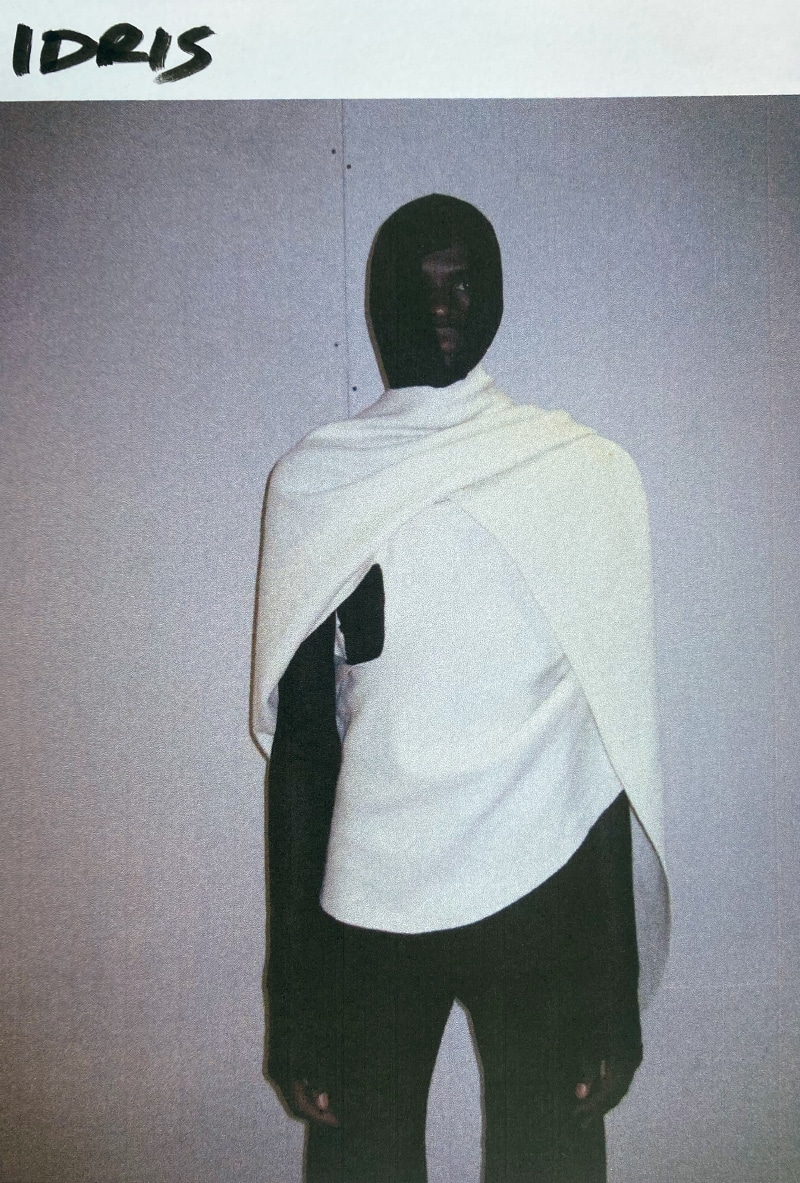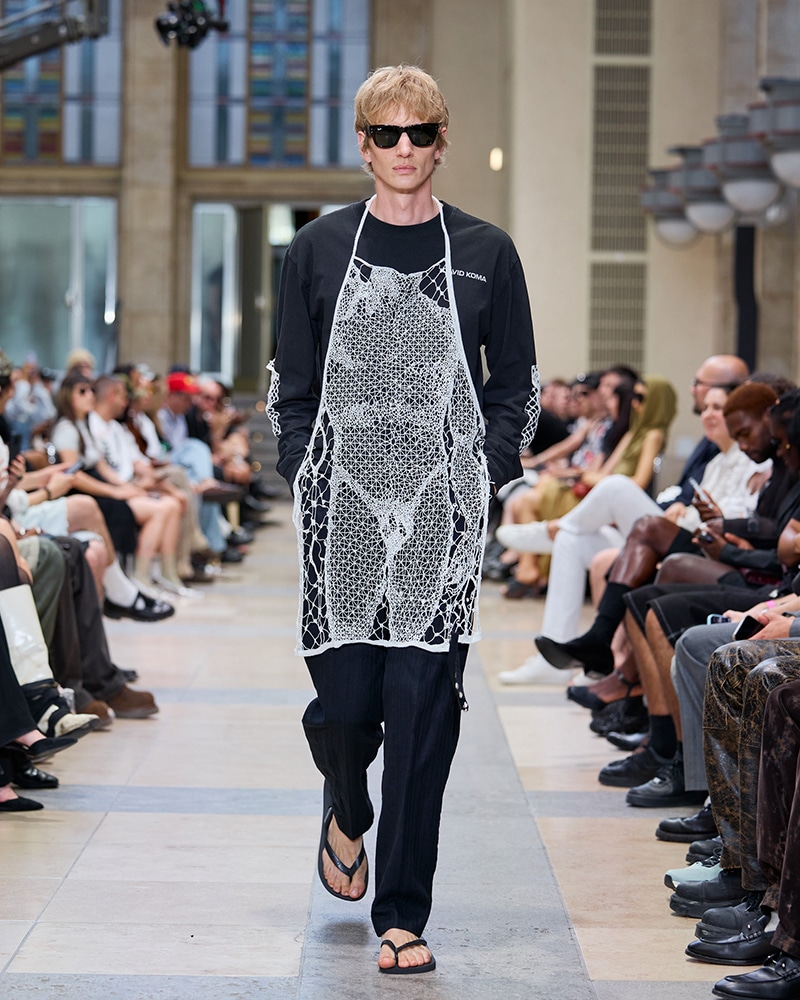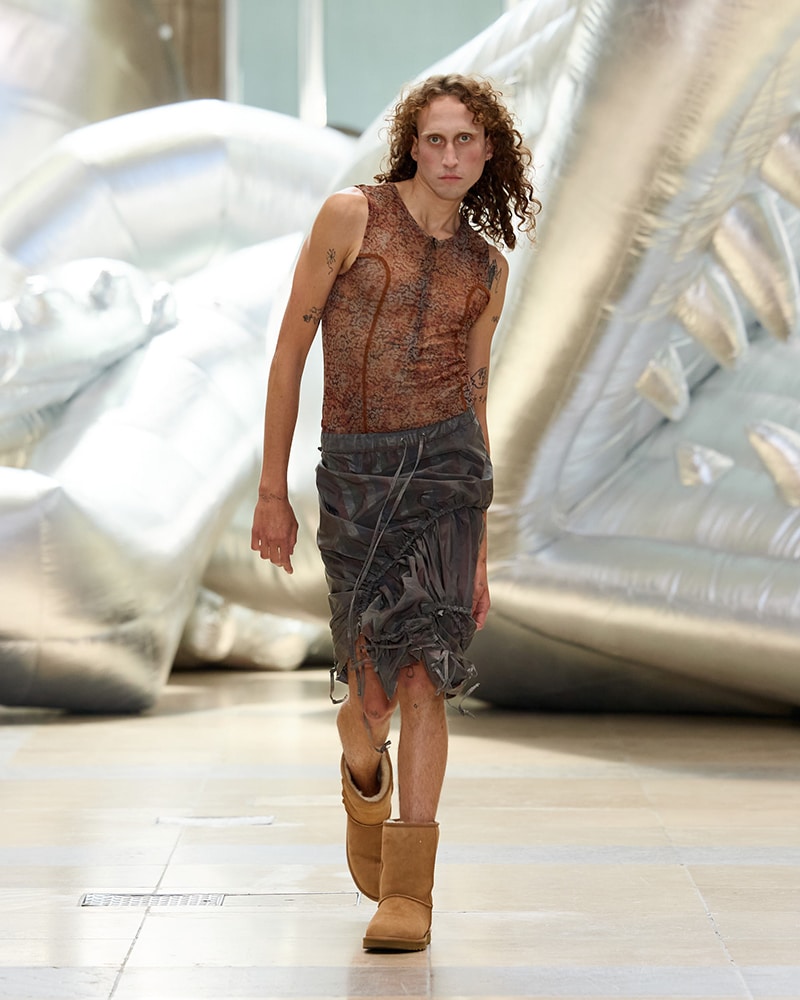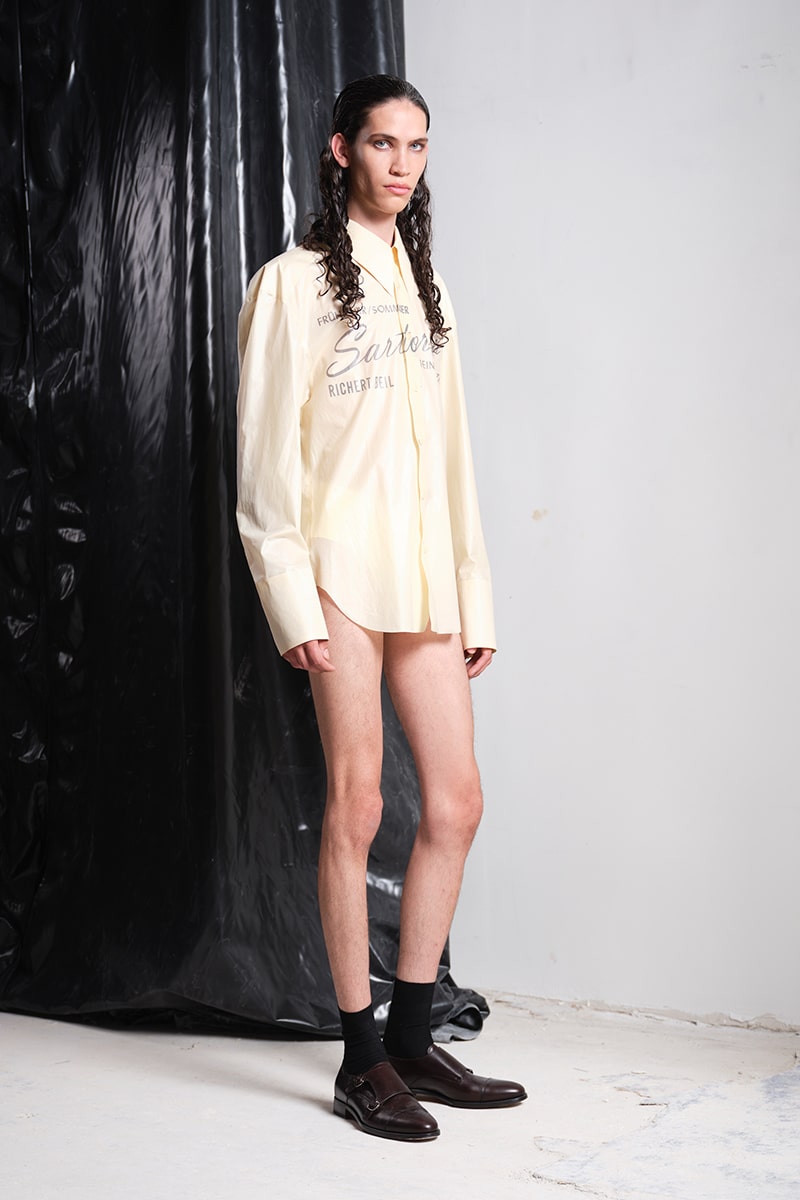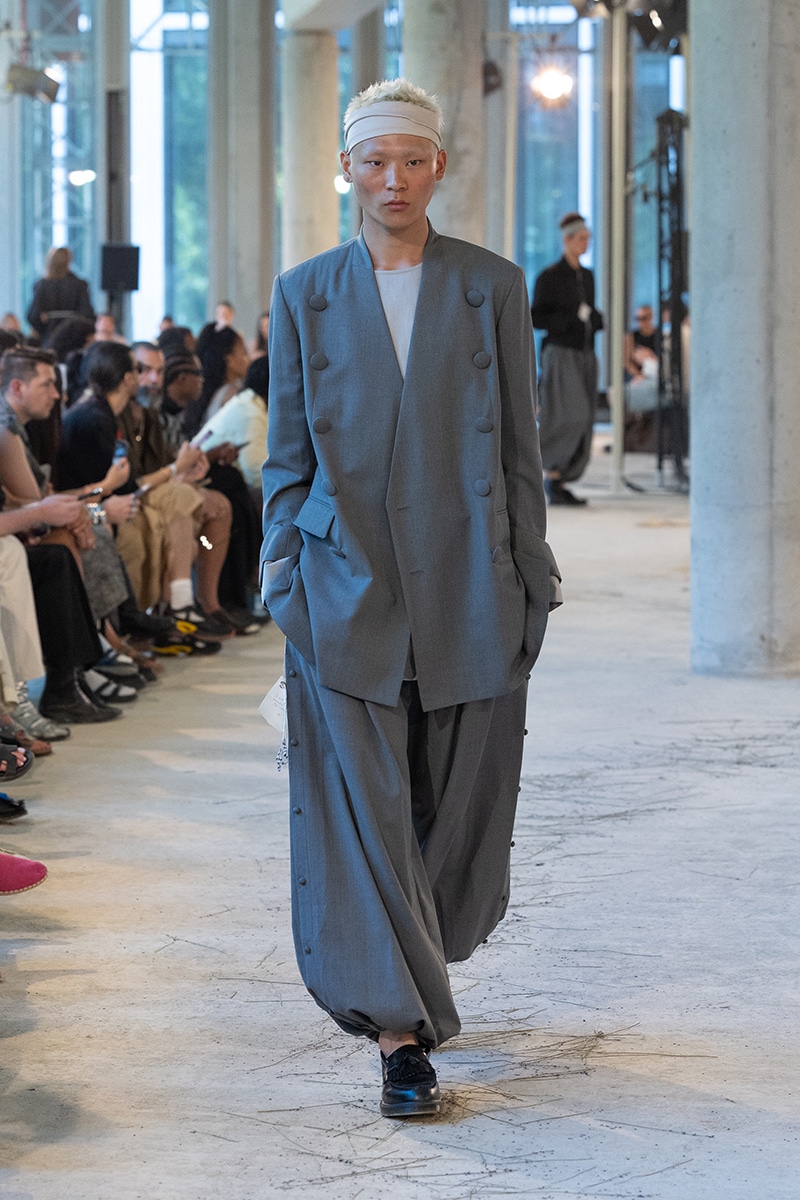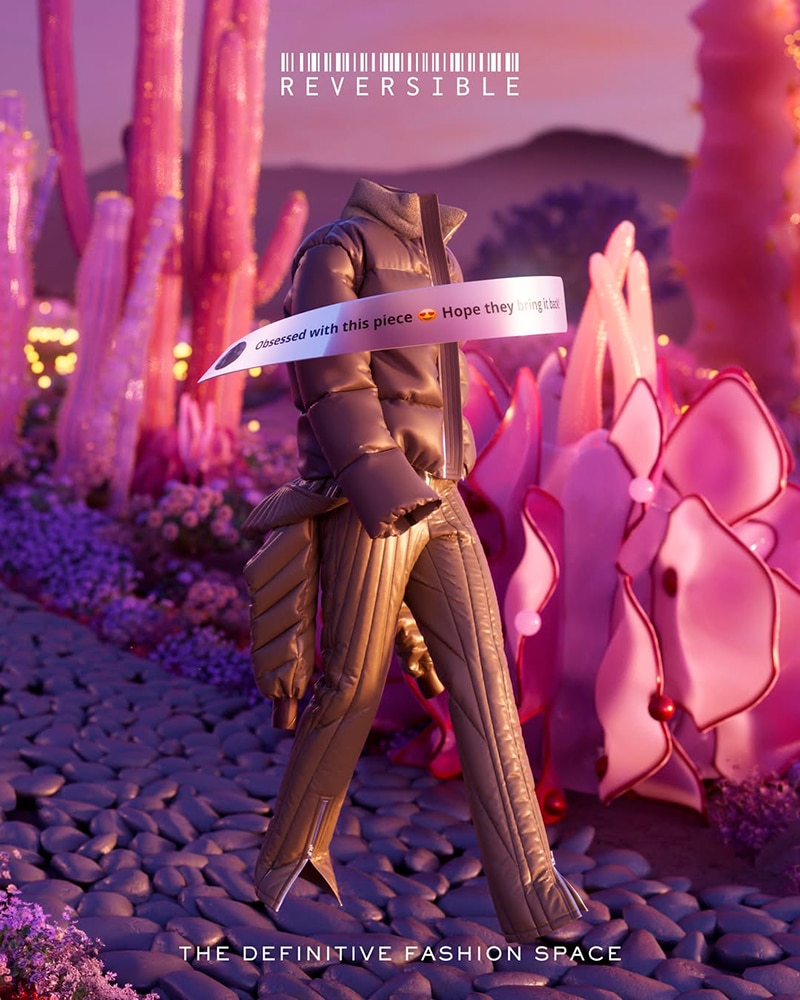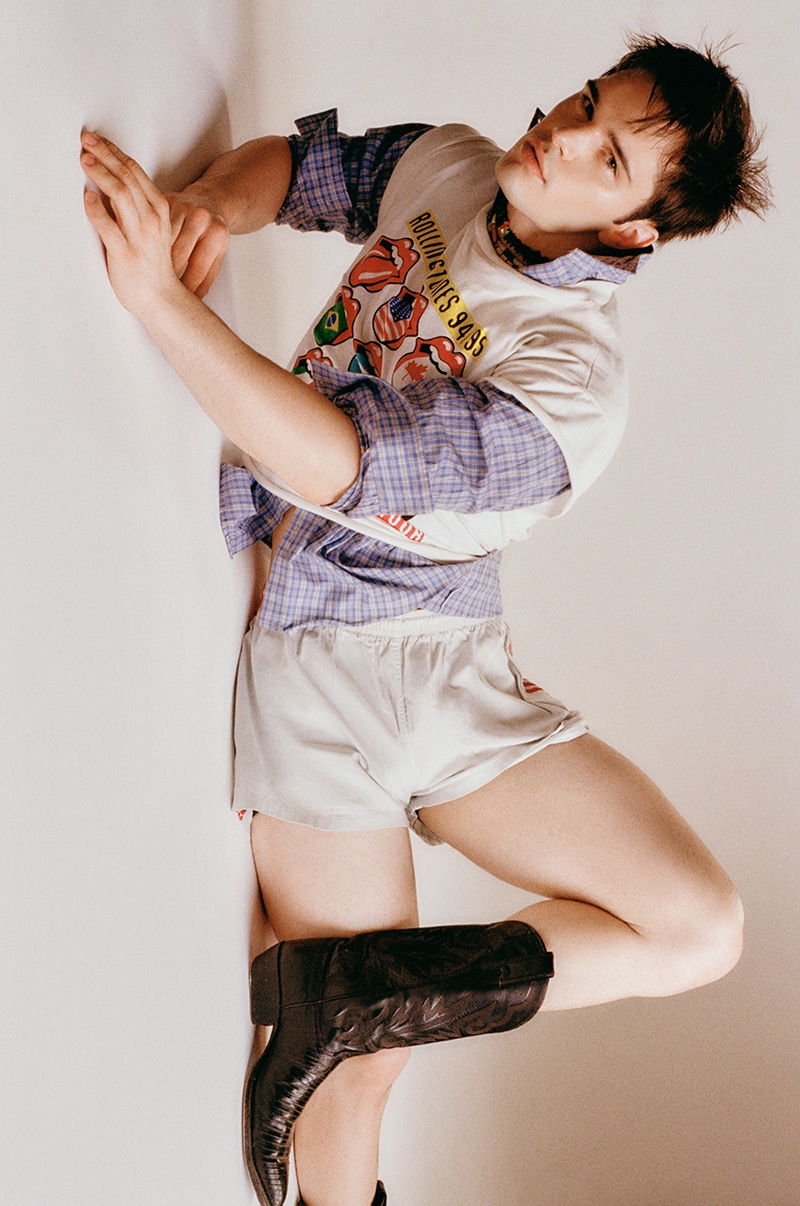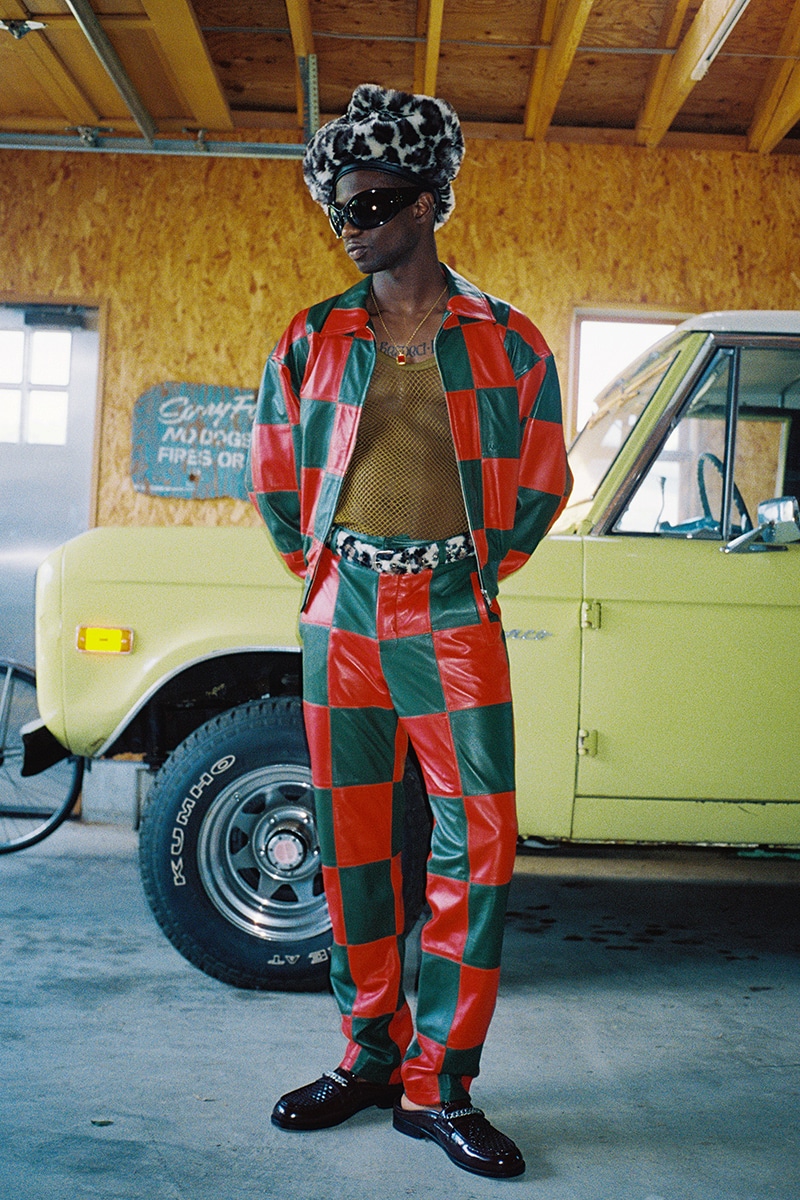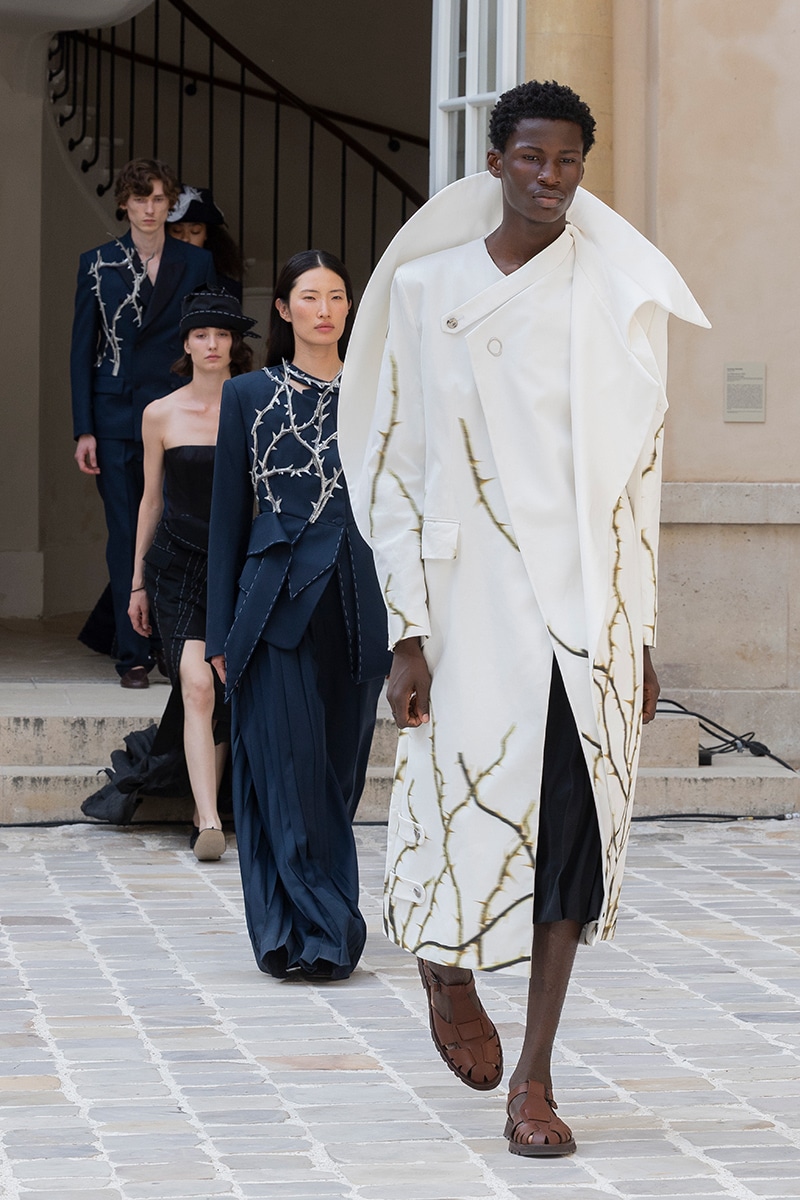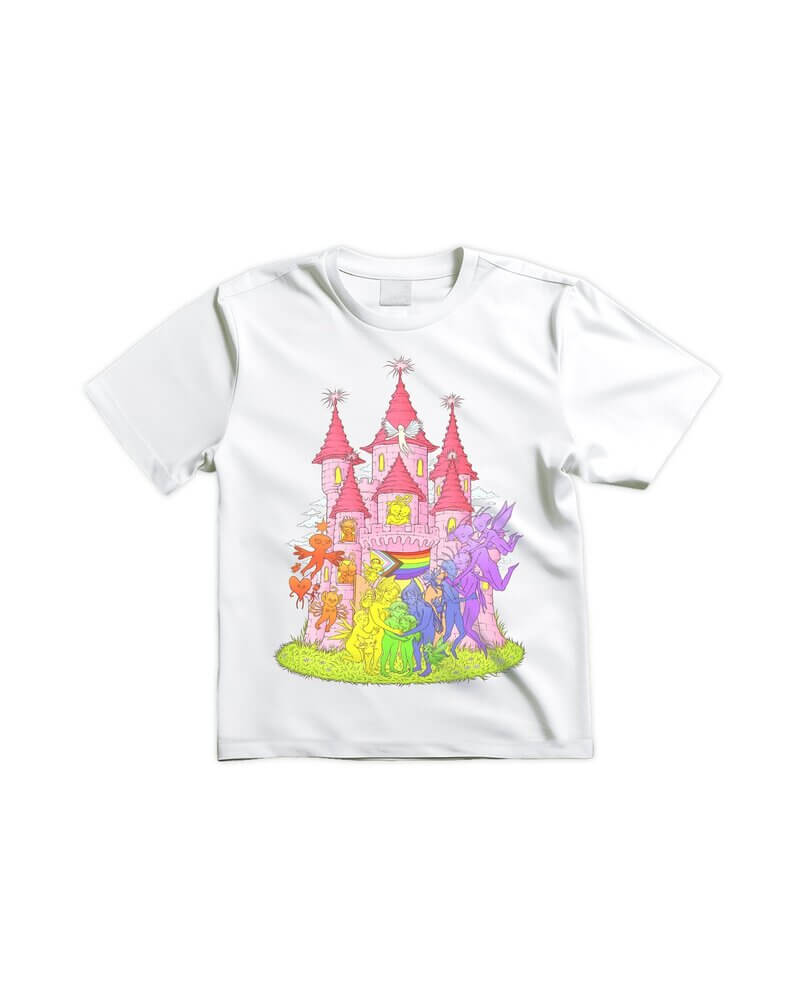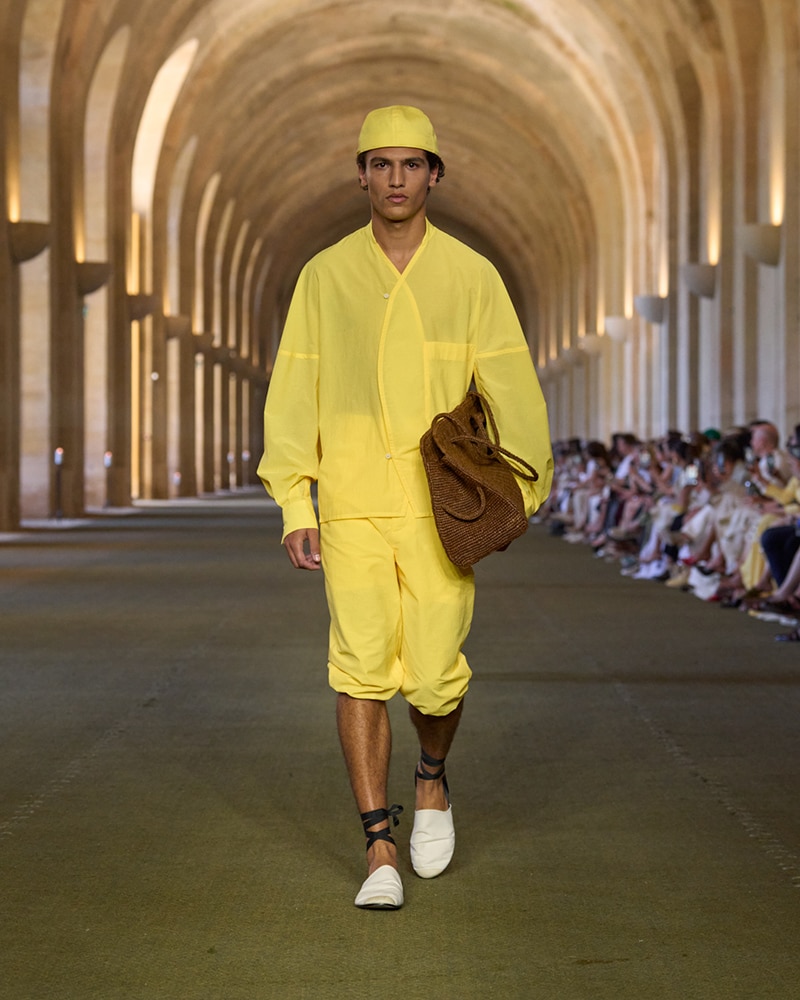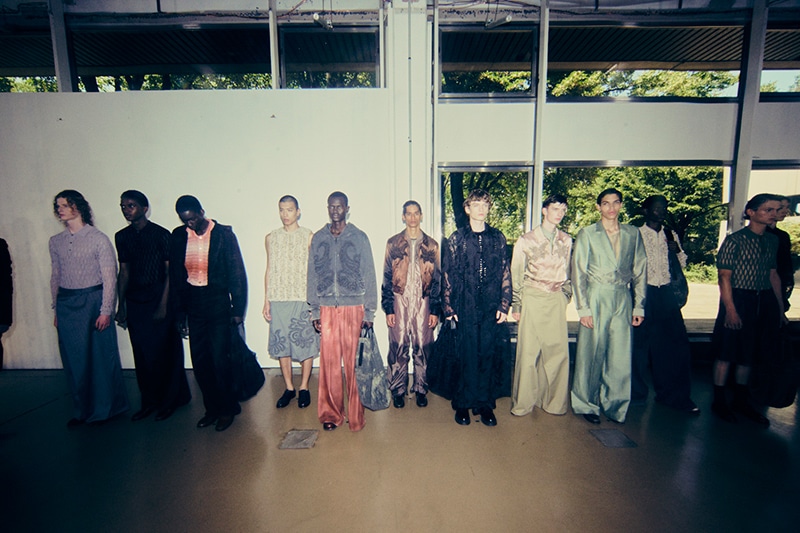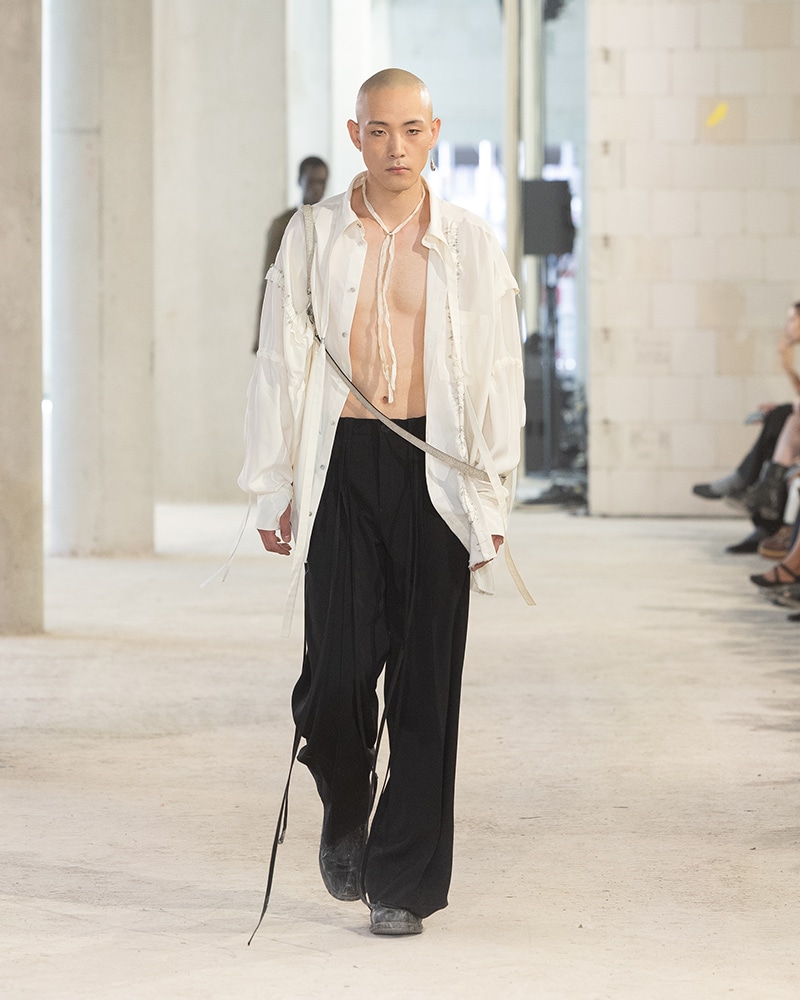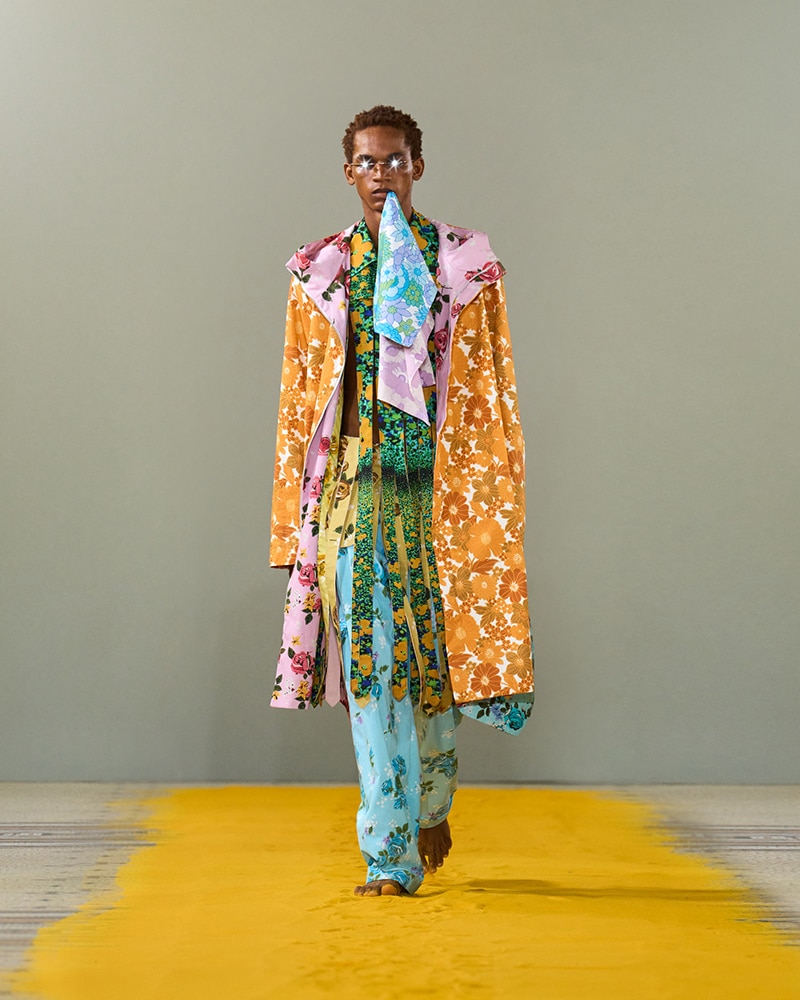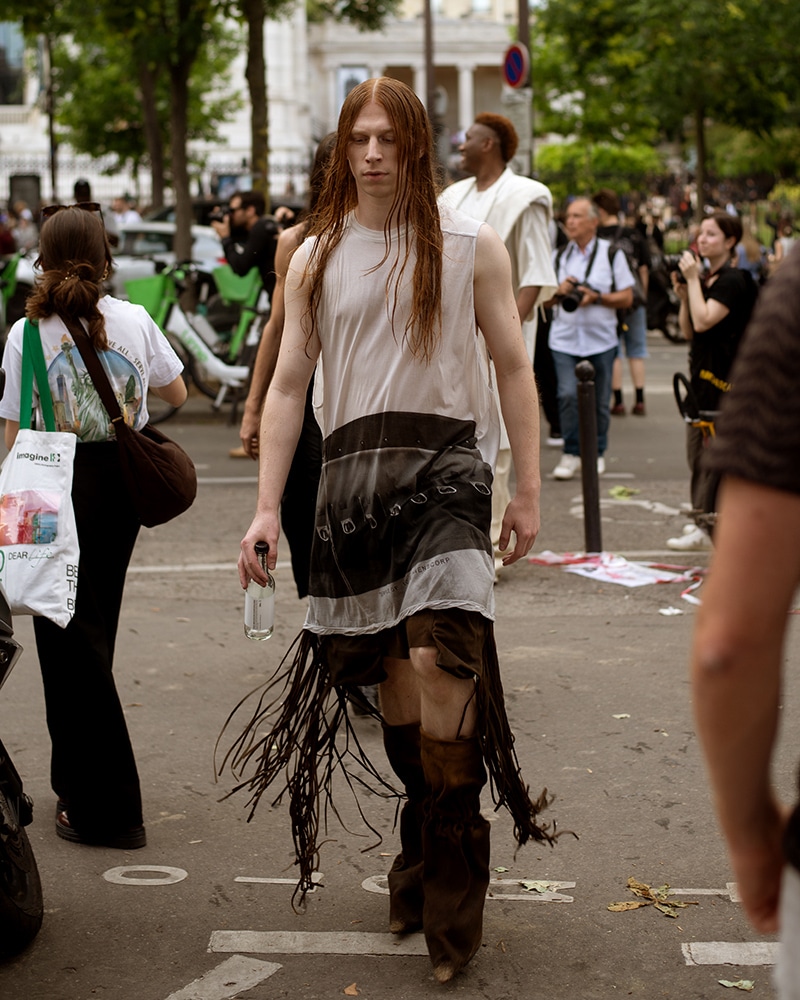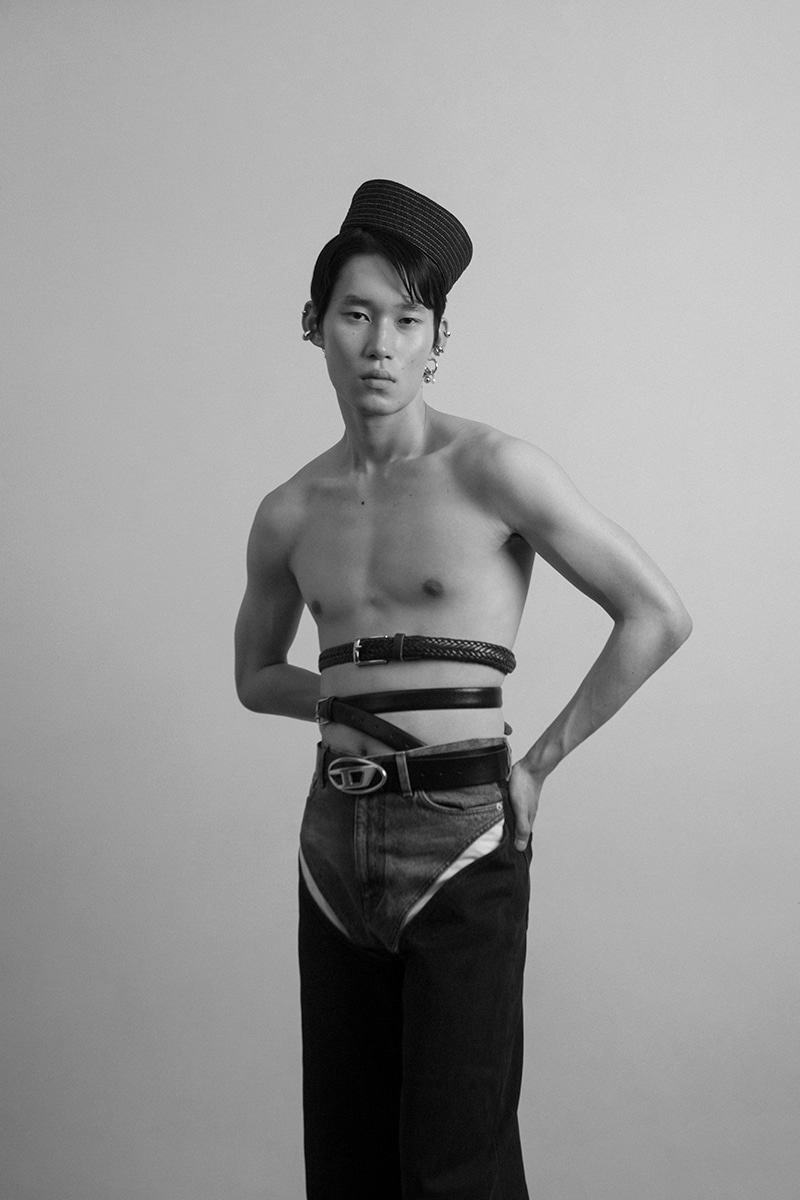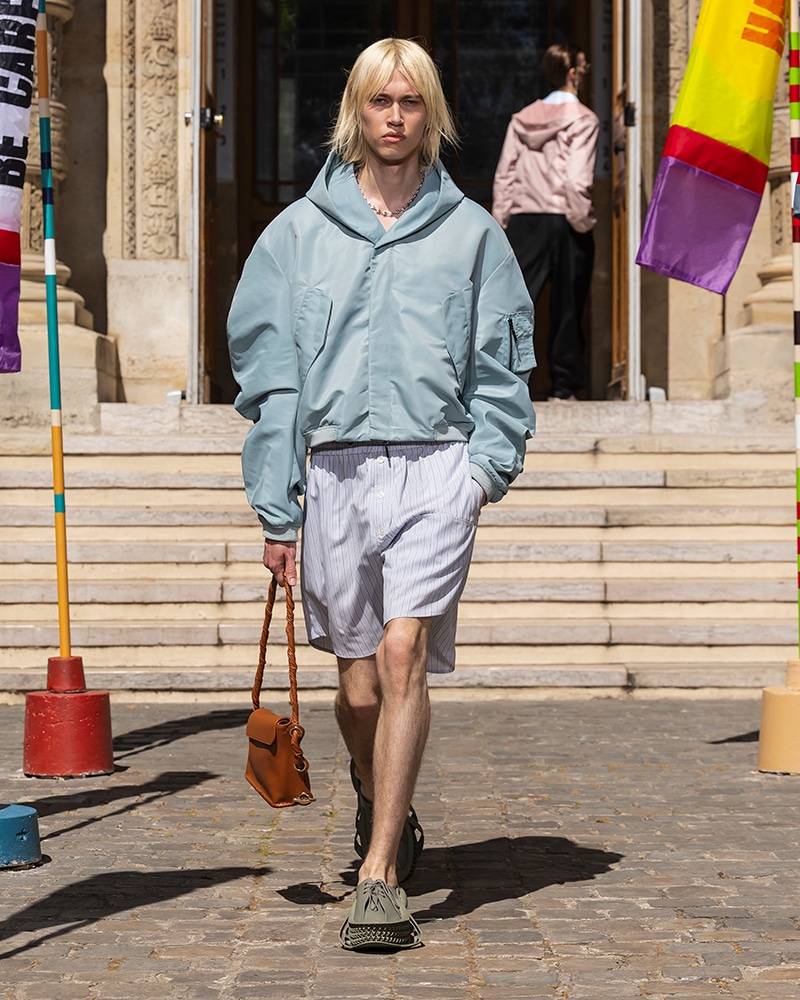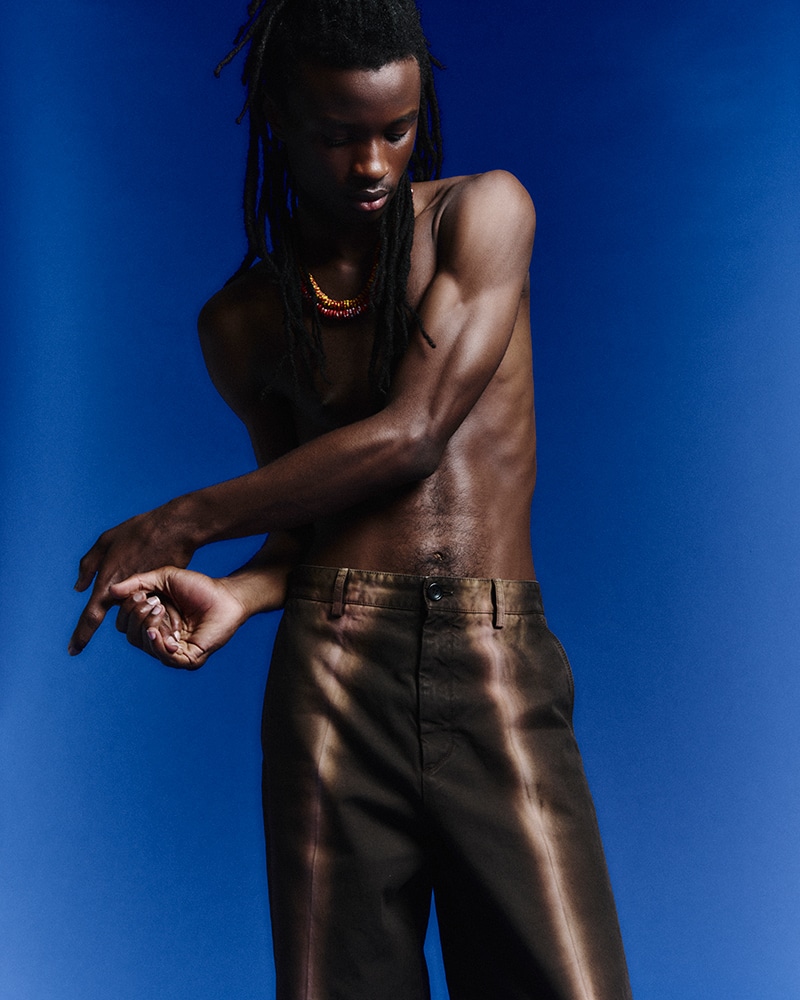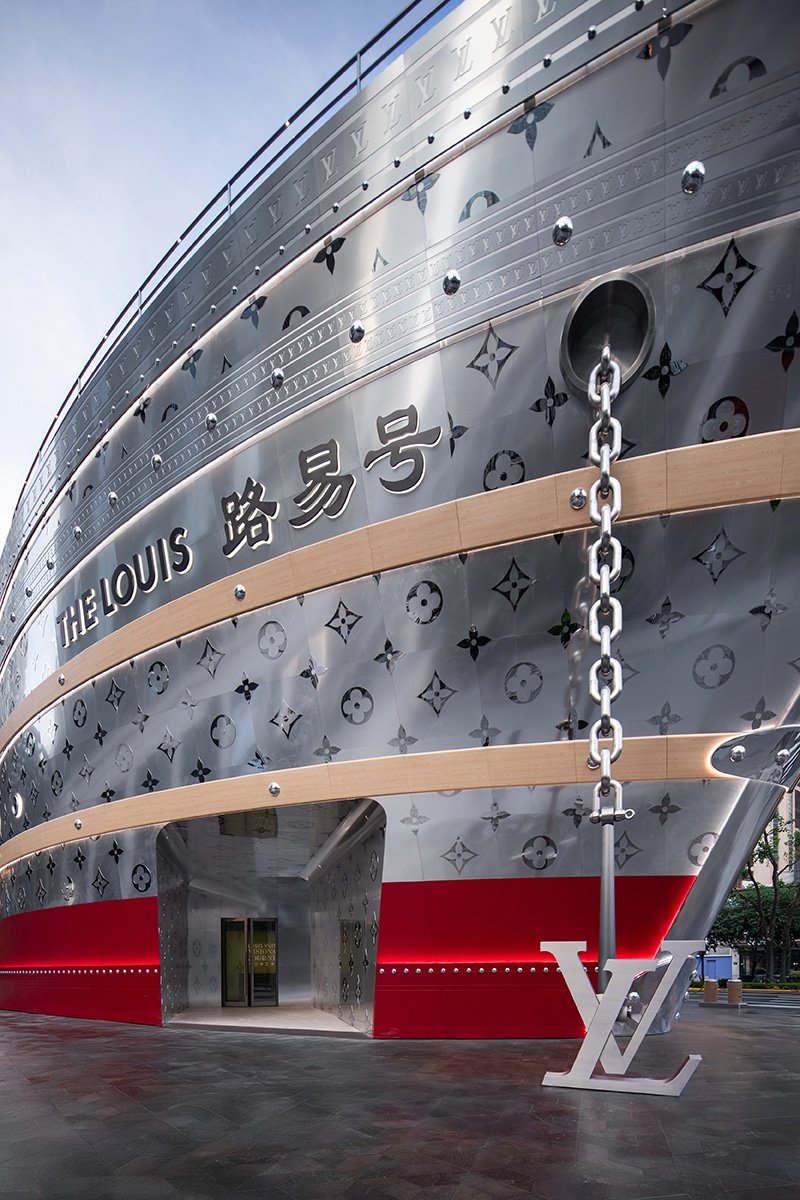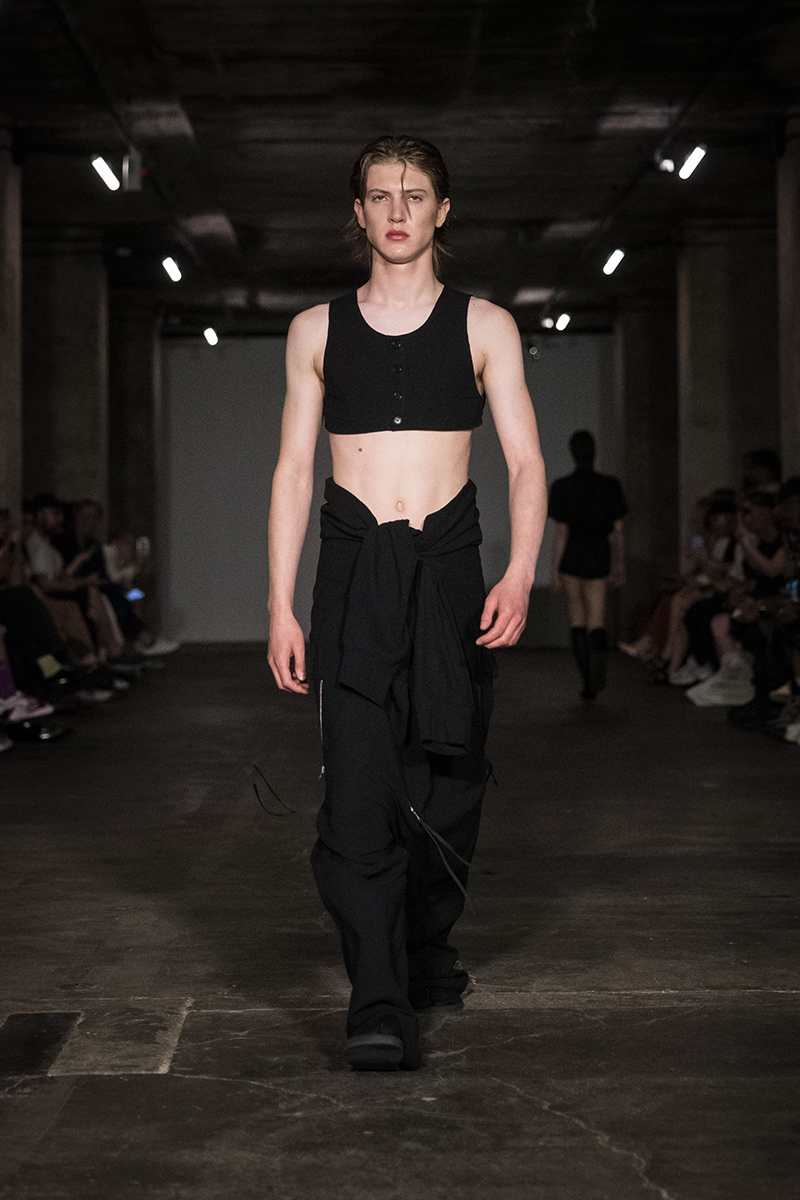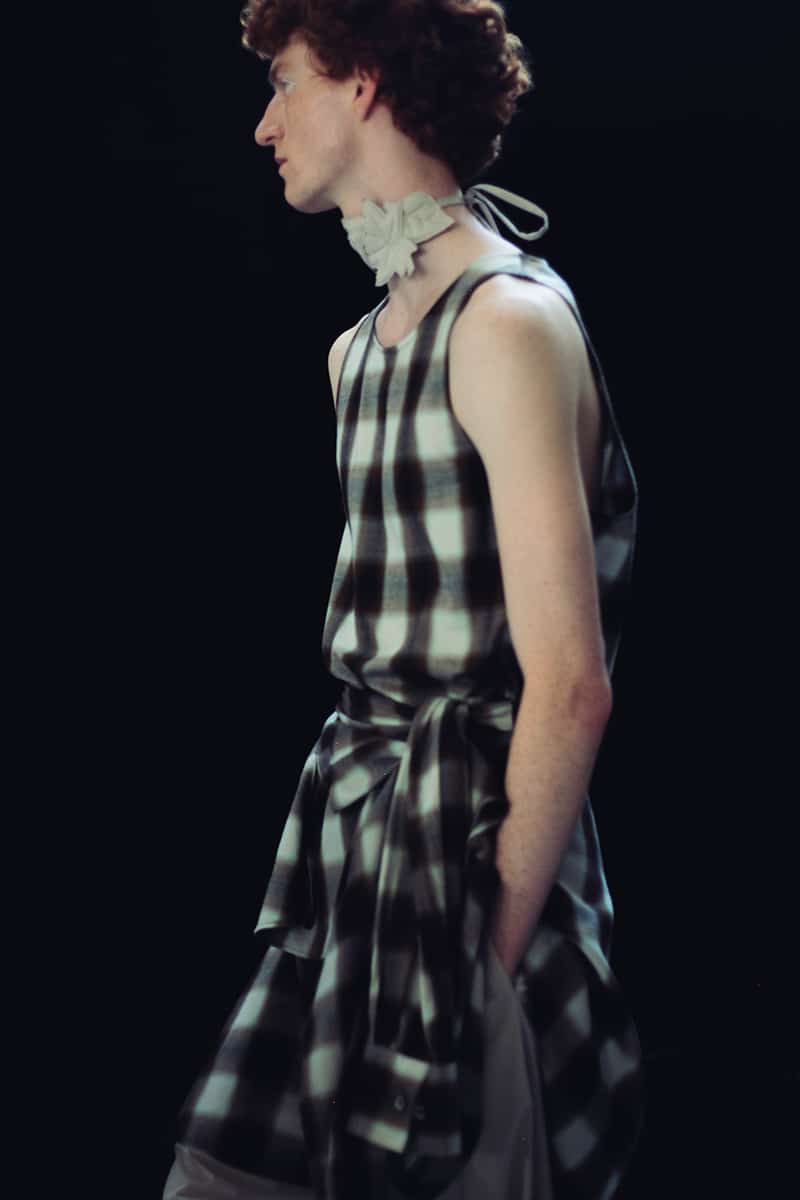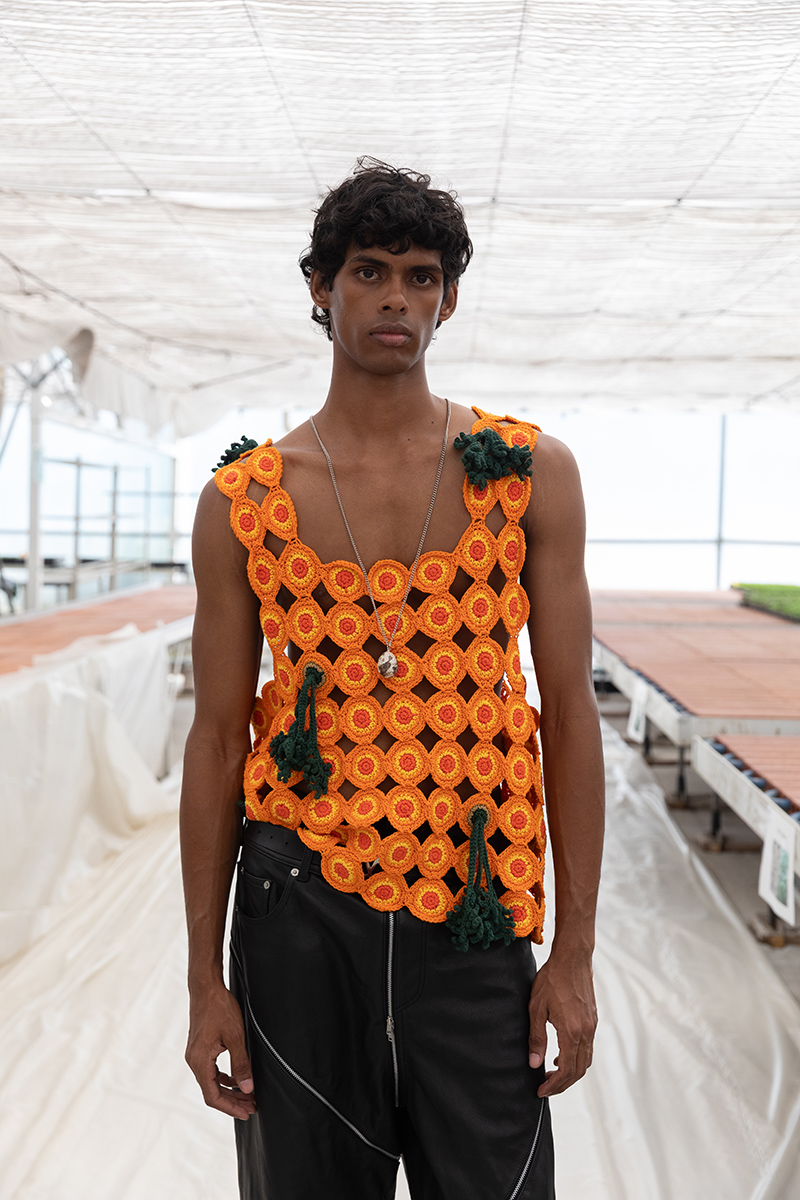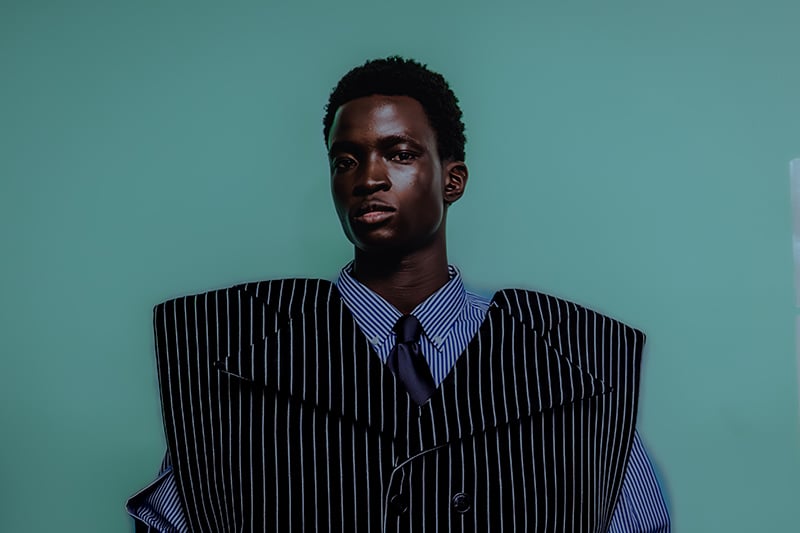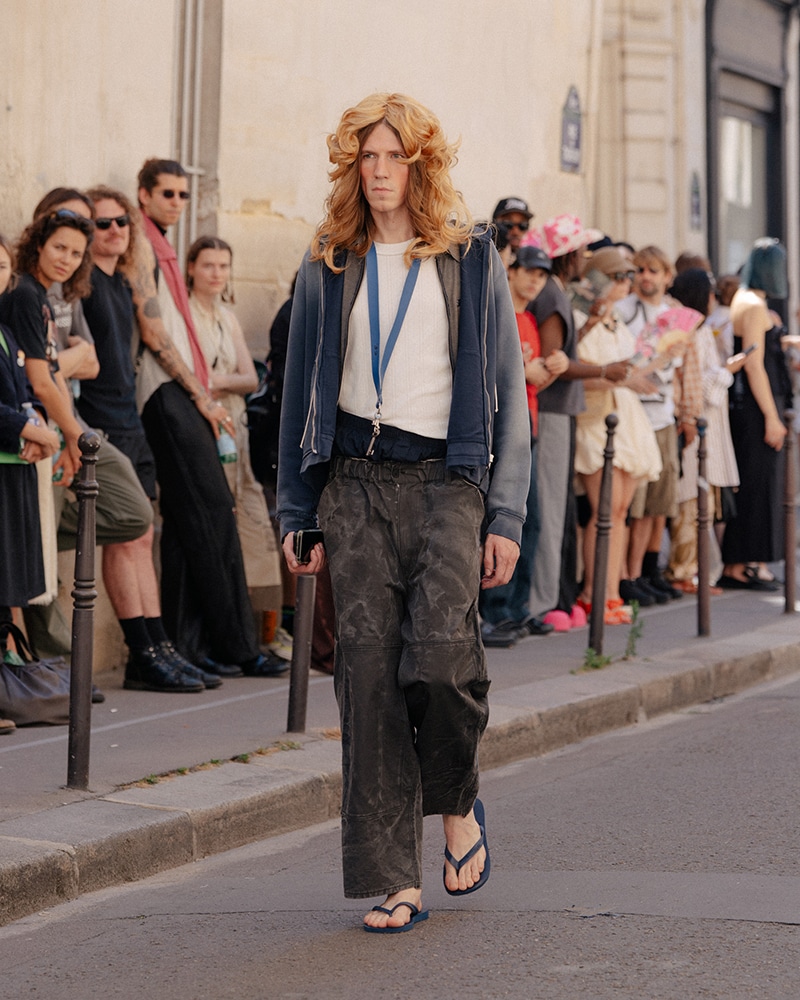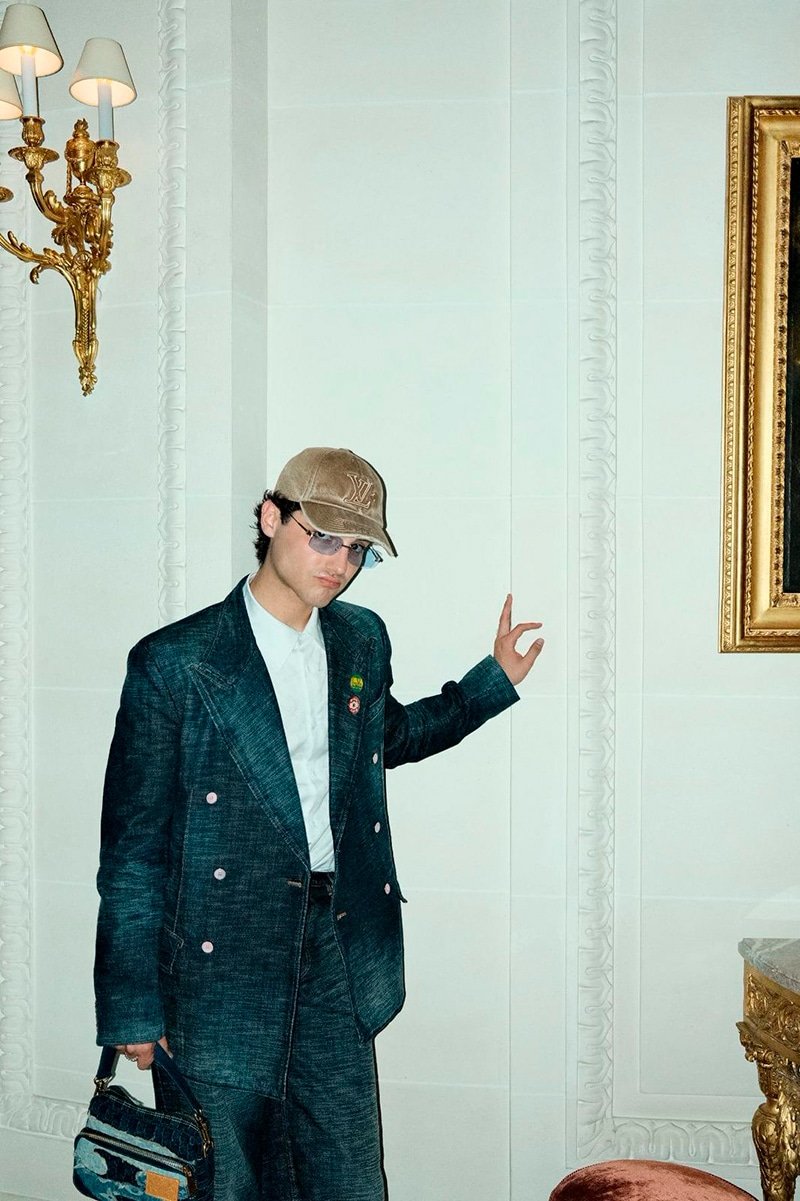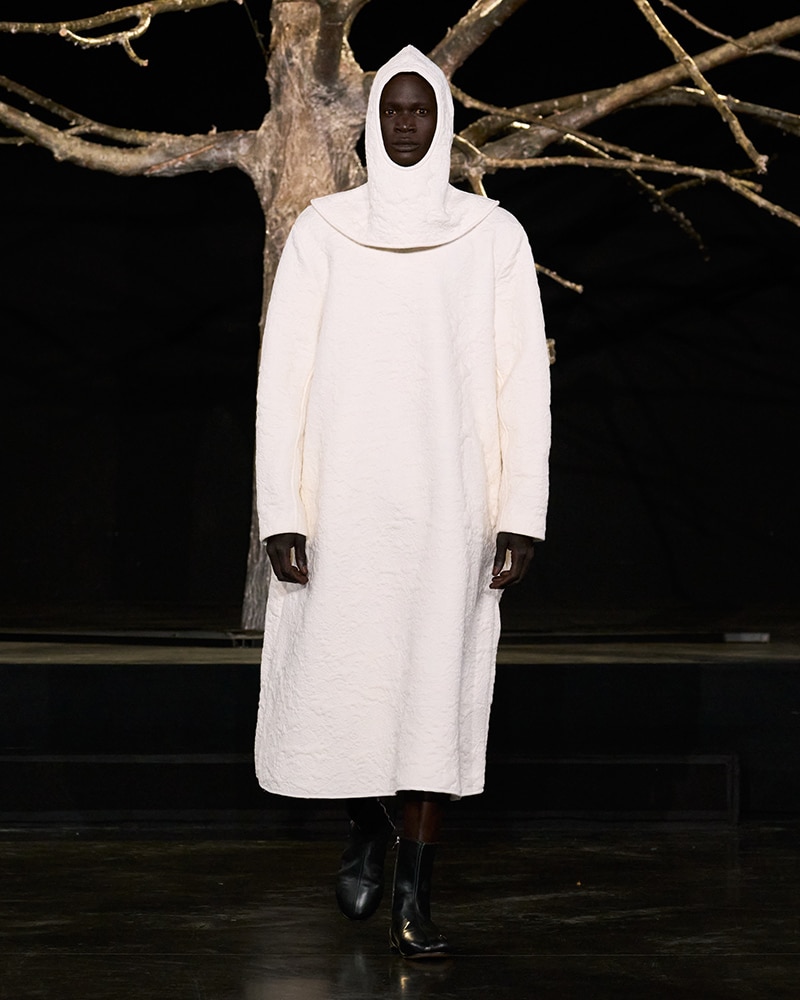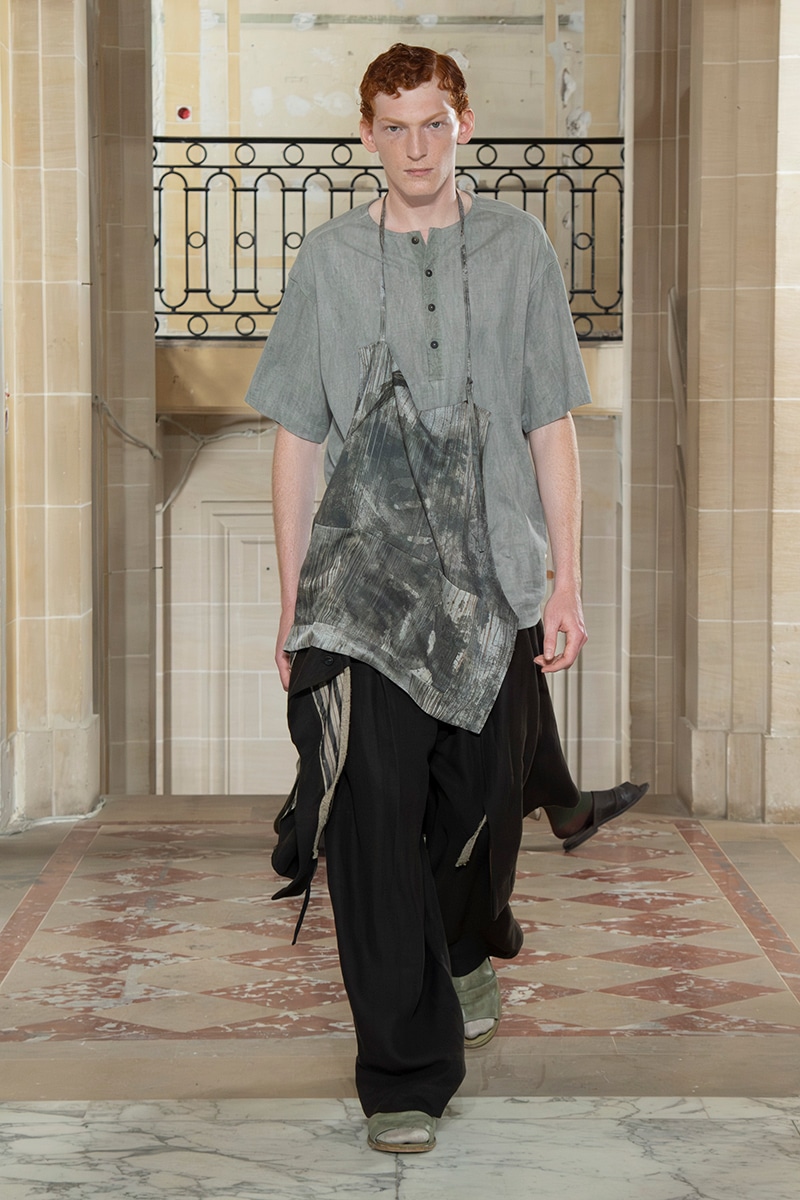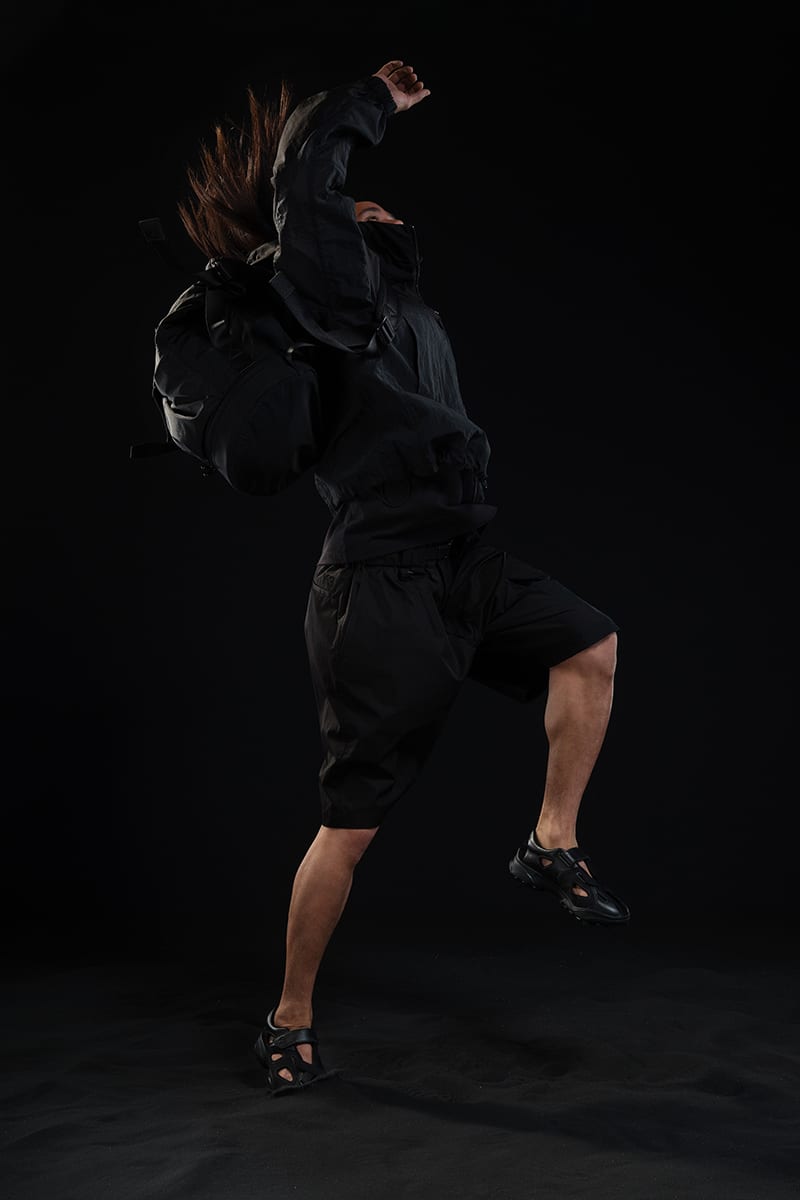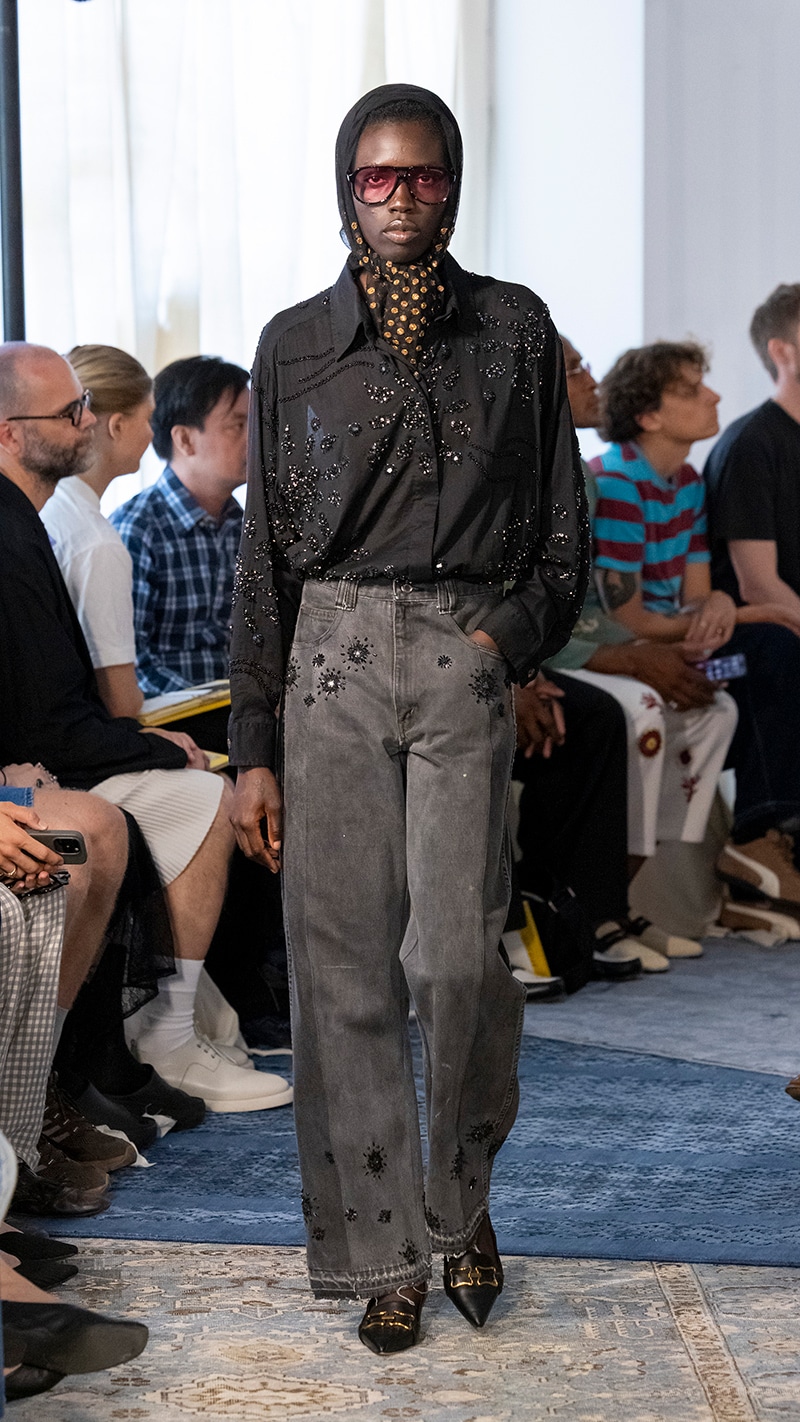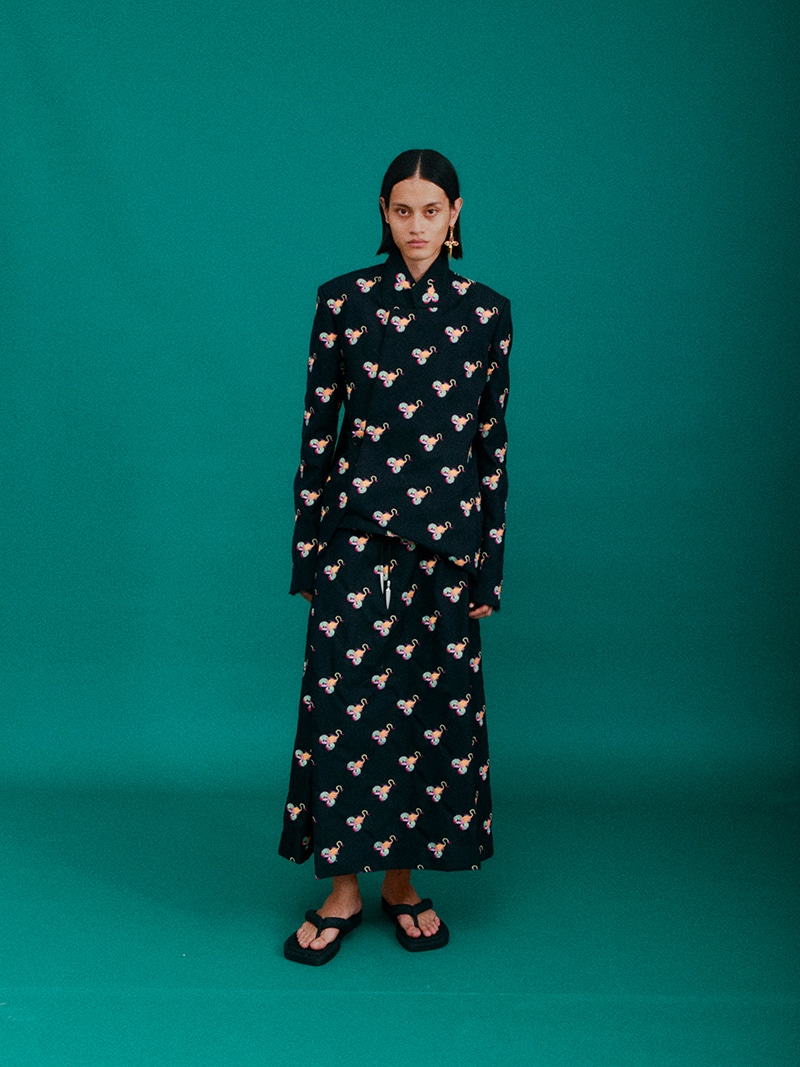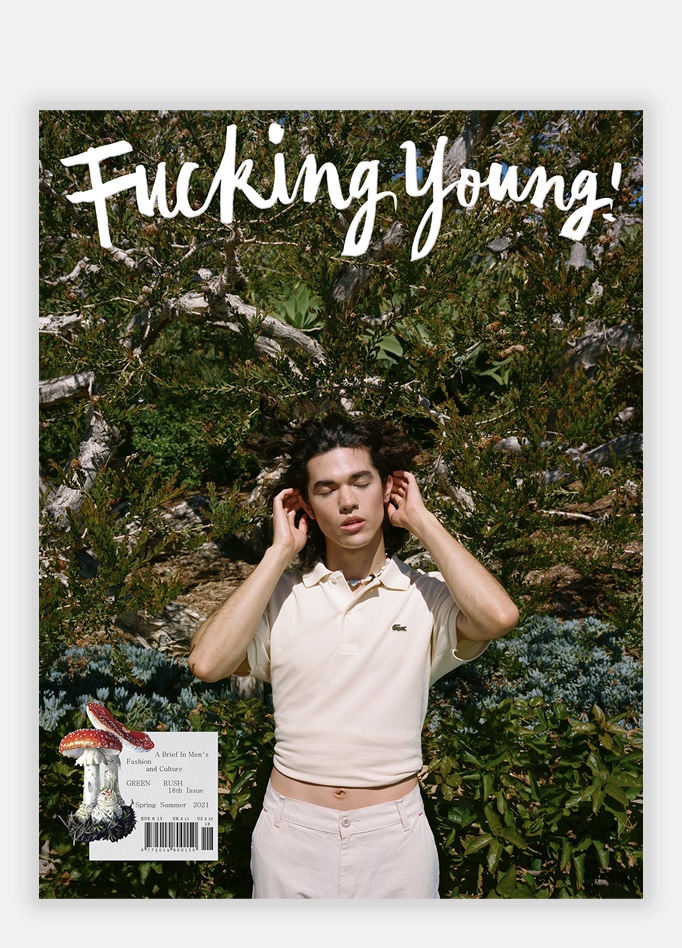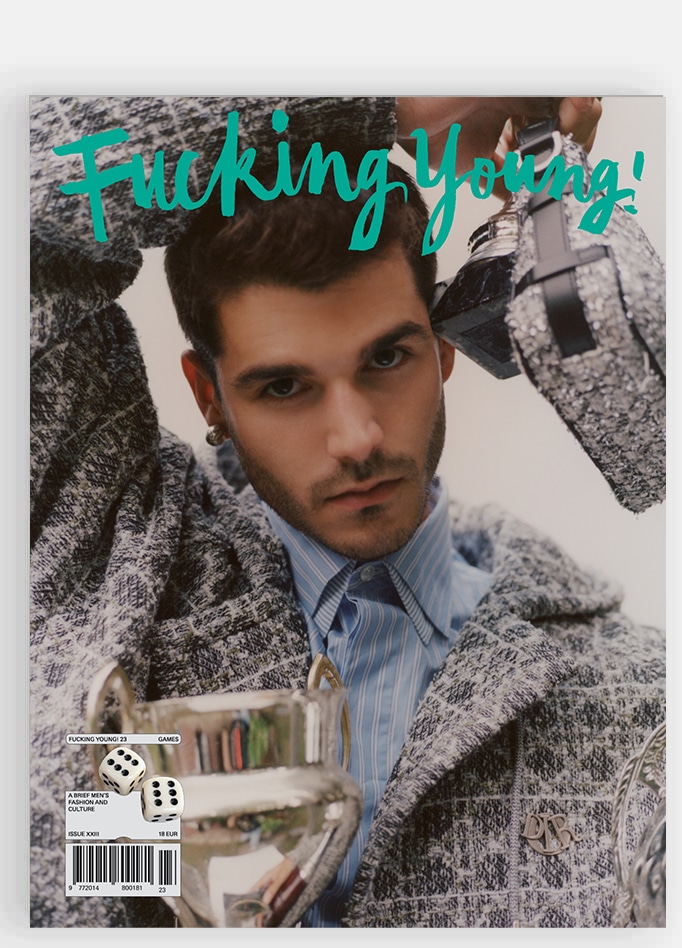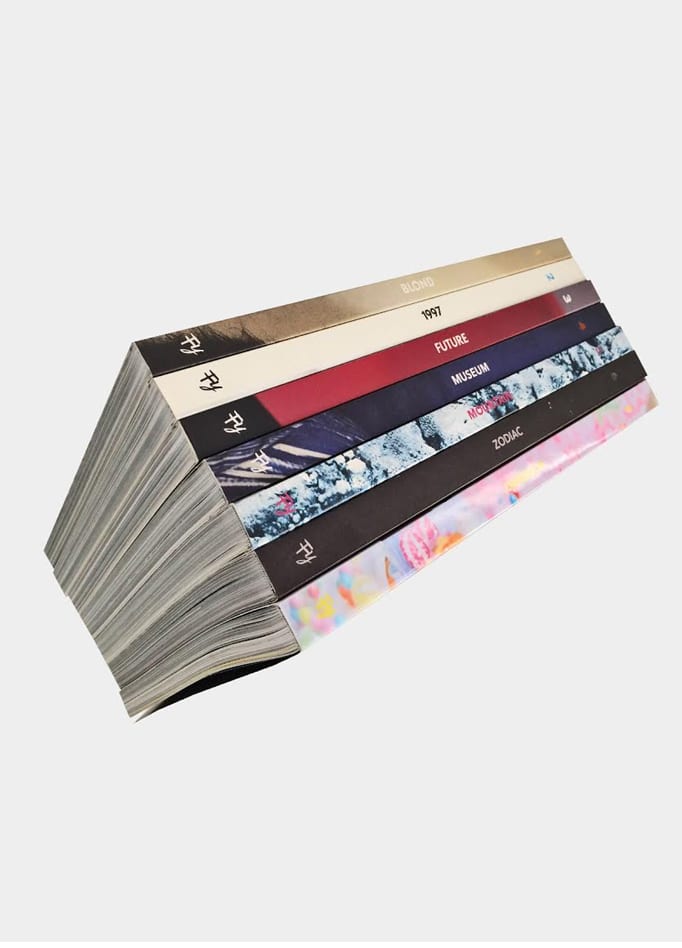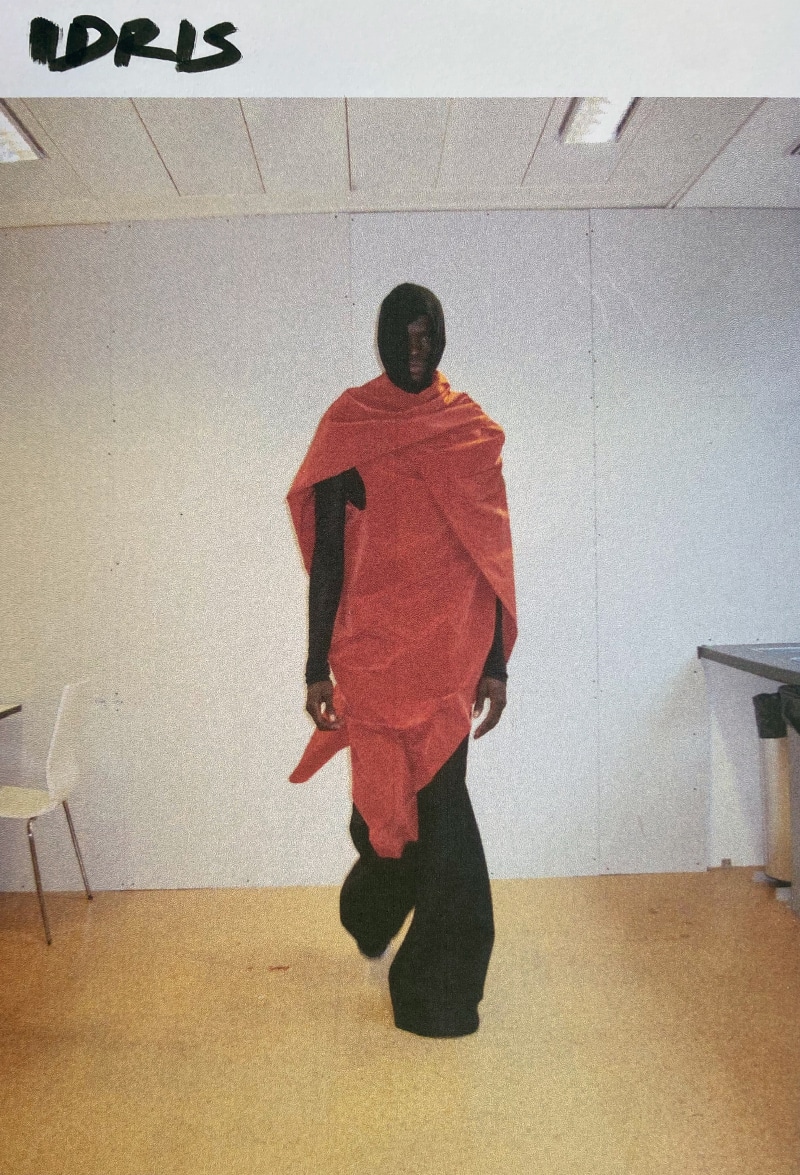
Living in a culturally vibrant megapolis could be both a moment of pride and a hurtful adaptation for minorities. One such story was told by a London- based creative duo of Cameron Williams and Jebi Labembika. Mediating their stories through the newly launched menswear brand – Nuba, designers unwrapped South London with its robust flow of the Afro-Caribbean, West African culture in the modern cut.
The creative directors debuted with the collection named Escape. As an emphasis on groundedness and search for safe space in society, like a cocoon of long embracing coats and garments comforting the body and mind, the collection serves as a reflection on upbringing while being upon two different realities and finding harmony between them.
FY! meets Cameron and Jebi to discuss the duo’s activity behind the newly baked brand, the philosophy of their creations, the importance of bringing groundedness to fashion and so much more.
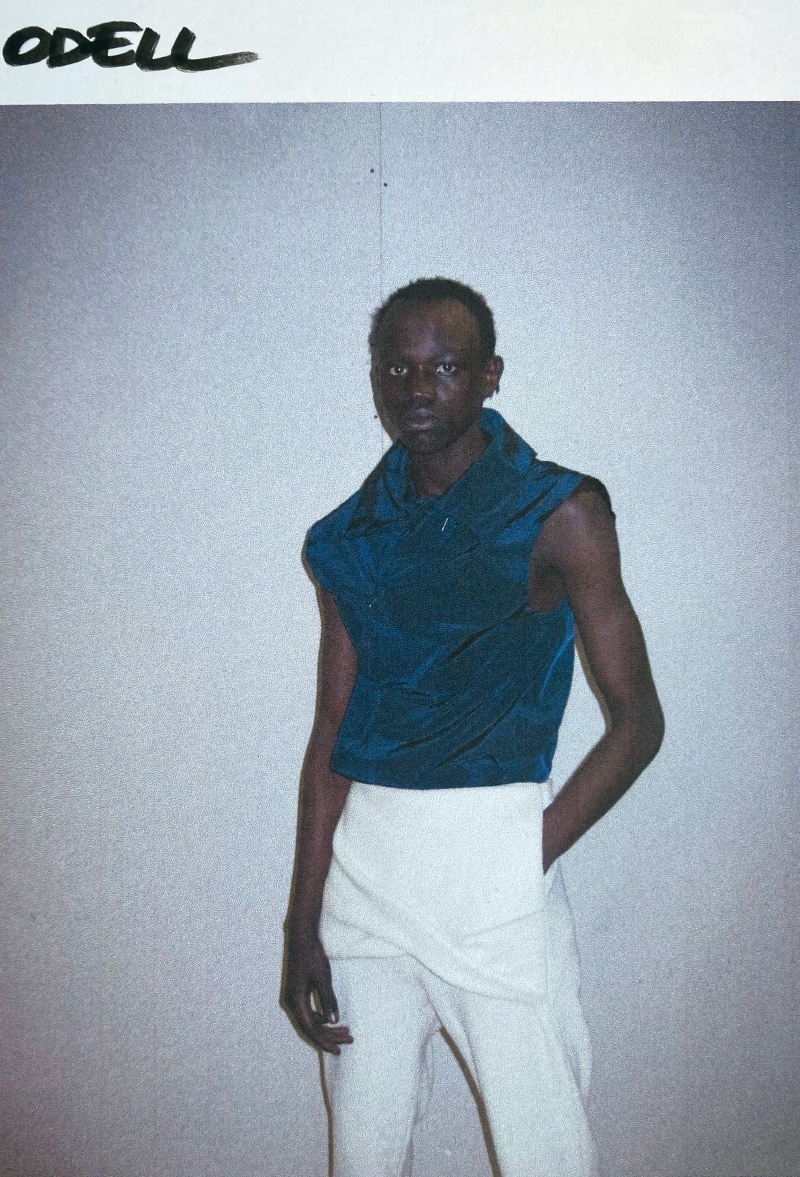
Hello Cameron and Jebi! It’s a big pleasure to talk with you today. Let’s start our interview with a small discourse about your childhood. How have you found fashion appealing and have you tried to use it to communicate with the outer world during your childhood?
Cameron: I found it as a means of exploring the meaning of identity. Through studying and incorporating life experiences into research, it was really a journey of navigating tastes, stories, and perceptions. Now, by incorporating cultural elements from our Afro-Caribbean and West African heritage, Nuba brings a nuanced perspective on how heritage adapts within cities. It’s about shifting perceptions and celebrating the nuances created by growing up in diverse environments. With both of us having spent our formative years in London, we’re offering a distinct blend of sophistication and cultural influences.
How do you think fashion helped you to deduce the world and experience the world around you?
Jebi: It allowed us to explore inherited cultural influences alongside those of our adopted environment in London. We really came to realize that fashion, and clothing in general, is a language of assimilation. The context of clothing in different geographies, on different bodies can hold drastically different meanings.
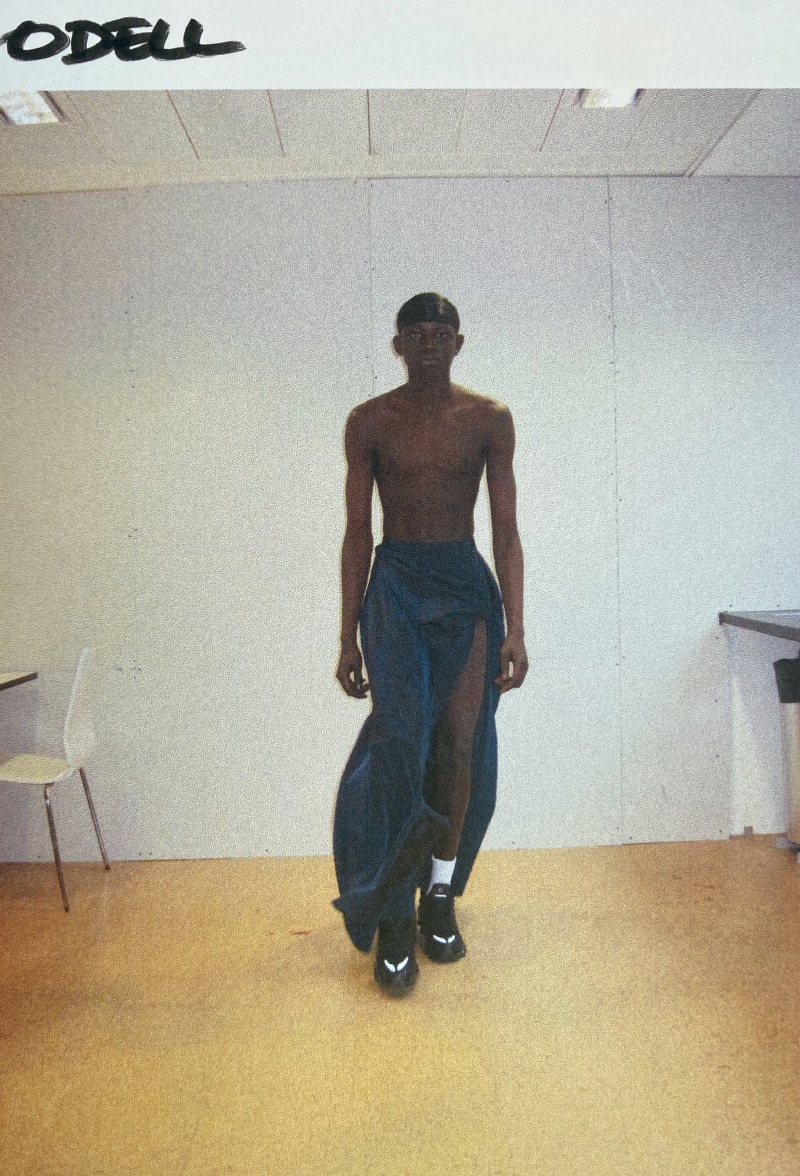
As far as I know, you (Cameron) started your way in fashion from womenswear, and now you launched your menswear brand. What are your perspectives on male fashion and what do you think your brand brings to the table in these terms?
Cameron: We’re bringing a fresh perspective to men’s clothing by challenging classical ideas of elegance and chicness. By infusing cultural elements inherited from our parents, from the perspective of a youth trying to define themselves, we add a youthful uniqueness and maturity to the brand simultaneously. It’s a challenge to embrace both.
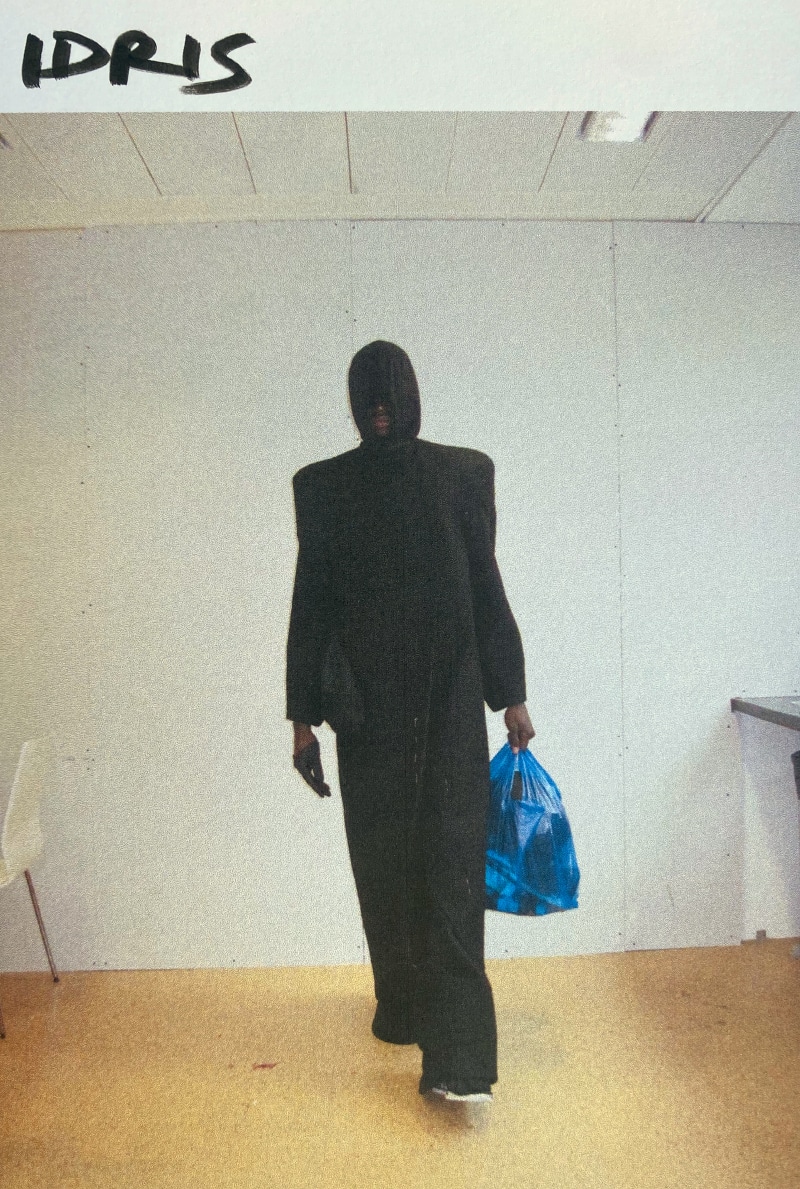
What was the process behind formulating and building the concept of your first collection together? Was there any special routine or research?
Jebi: We drew inspiration from individuals in South London who layer their heritage with cultural symbols of the city. Our routine encompassed draping garments with care, incorporating hidden pockets and fastenings as a form of protection against societal stereotypes. Through our collection, we aimed to empower future generations, providing a sense of readiness and confidence as they navigate the world.
Let’s dive into discussing your debut with Nuba. Why is the collection called Escape?
Cameron: Because it captures the essence of breaking free from predefined identities and cultural expectations. It represents the journey of individuals navigating their inherited cultural influences and their adopted environment. Through a mature stripping back of these references, we conceptualized youthful bodies growing into a balanced nuance of different worlds. “Escape” encourages anyone feeling the need to break free from their reality or culture to tell their own story, and embrace personal authenticity.
How did you express this thesis of escape and integrity with oneself into garments?
Cameron: Through creating silhouettes that offered a sense of protection and allowed individuals to navigate societal stereotypes. Tailoring that resembles the proportion and cut of a mother’s coat that one would take and protect themselves with. Hidden pockets and fastenings were incorporated to provide a sense of security, while the layering of cultural symbols and metropolitan influences represented the fusion of diverse experiences and environments.
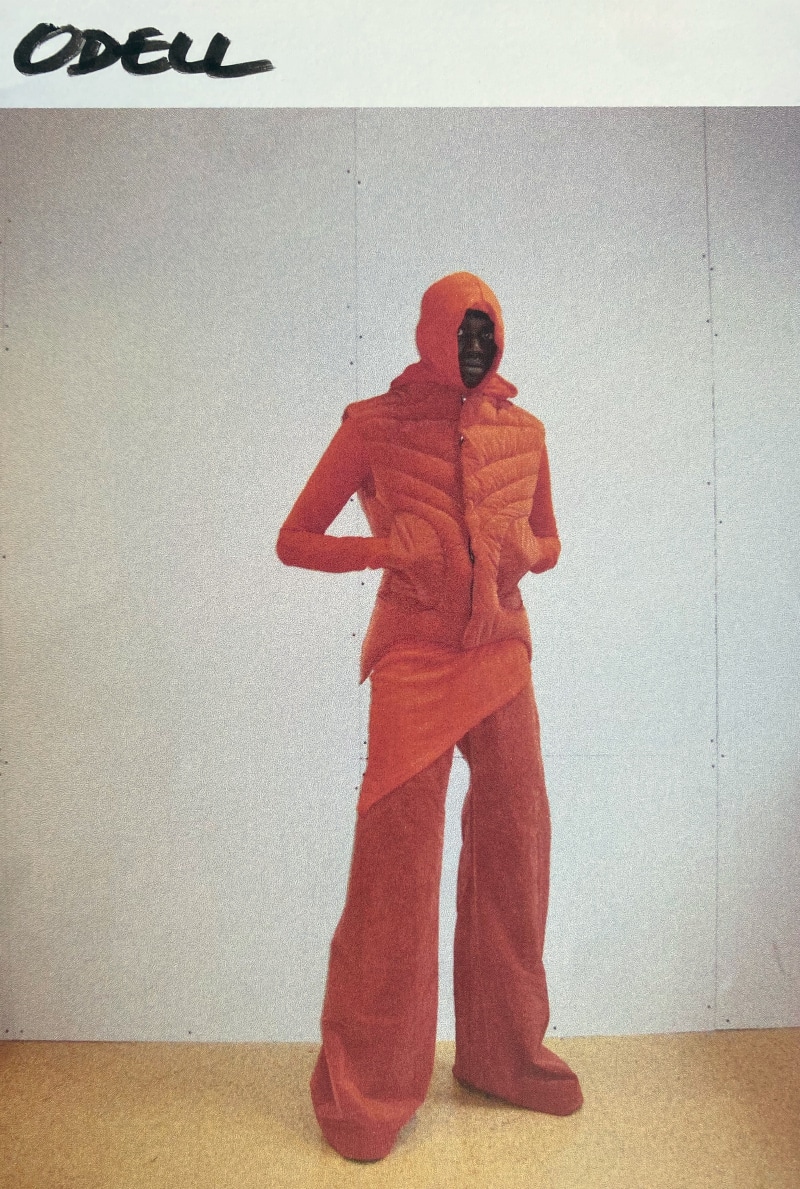
How did you manage to create such a hybrid of cultures, environments, and experiences and put it into clothes?
Jebi: We drew inspiration from the individuals who effortlessly combine their heritage with symbols of London in South London. By meticulously draping garments and selecting textures like British felted wool and crumpled nylons, we visually represented the diverse cultural and social meridians that run through our bodies, creating a tangible expression of our unique perspective.
With this collection and concept, you made a crossover of womenswear and menswear and built a bridge of interaction and communication, which is not usual to see in more masculine silhouettes. Can we, please, discuss this aspect of your work together?
Cameron: Our collection and concept allowed us to bridge the gap between womenswear and menswear, creating a space for interaction and communication. We challenged traditional masculine silhouettes by infusing them with elements inspired by the women we see in cultural symbols and influences. This blending of styles breaks free from prescribed gender norms, providing a platform for self-expression and embracing individuality within the context of fashion.
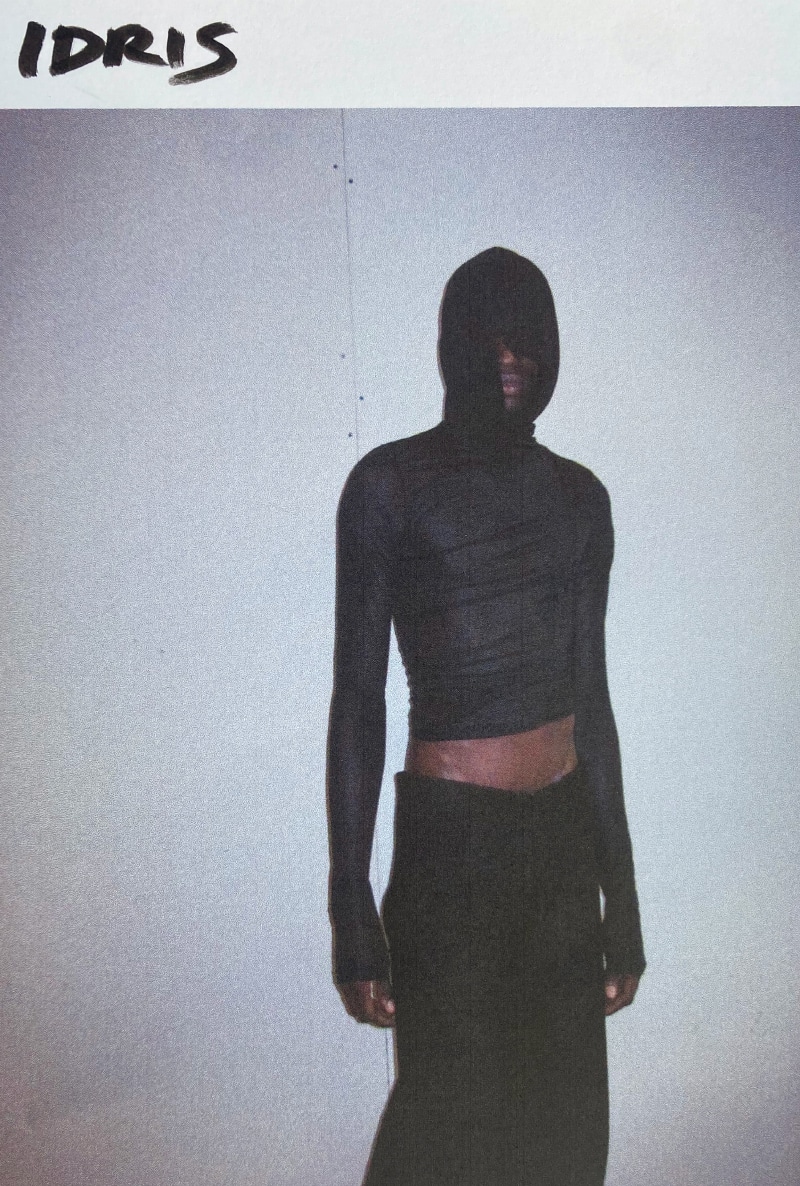
How did you and Jebi come up with the collaboration and creative alliance? How did his and yours multi-disciplinary approach help you both in creating, architecting, and reflecting on your first creative debut as a duo?
Jebi: Our collaboration and creative alliance emerged from a longstanding friendship and shared vision. My multi-disciplinary approach to art and image-making complemented my background in design. Together, we brought a holistic perspective to the creative process, architecting the concept of Escape and reflecting on its execution. Our collaboration enabled us to explore the intersections of culture, displacement, and identity, resulting in a cohesive and meaningful debut as a duo.
What about the main points of the collection, can we say it is put in colors, as you’ve used 4 main colors? Do colors represent anything or is there any symbolism behind them?
Cameron: The collection is indeed centered around four main colors – oranges, blues, blacks, and whites. Each color carries symbolism within the context of Escape. Oranges represent energy, enthusiasm, and new beginnings. Blues evoke a sense of calmness and reflection. Blacks symbolize strength, resilience, and the idea of overcoming adversity. Whites signify purity, openness, and a blank canvas for self-discovery. The color palette creates a visual narrative that aligns with the overall theme of the collection.
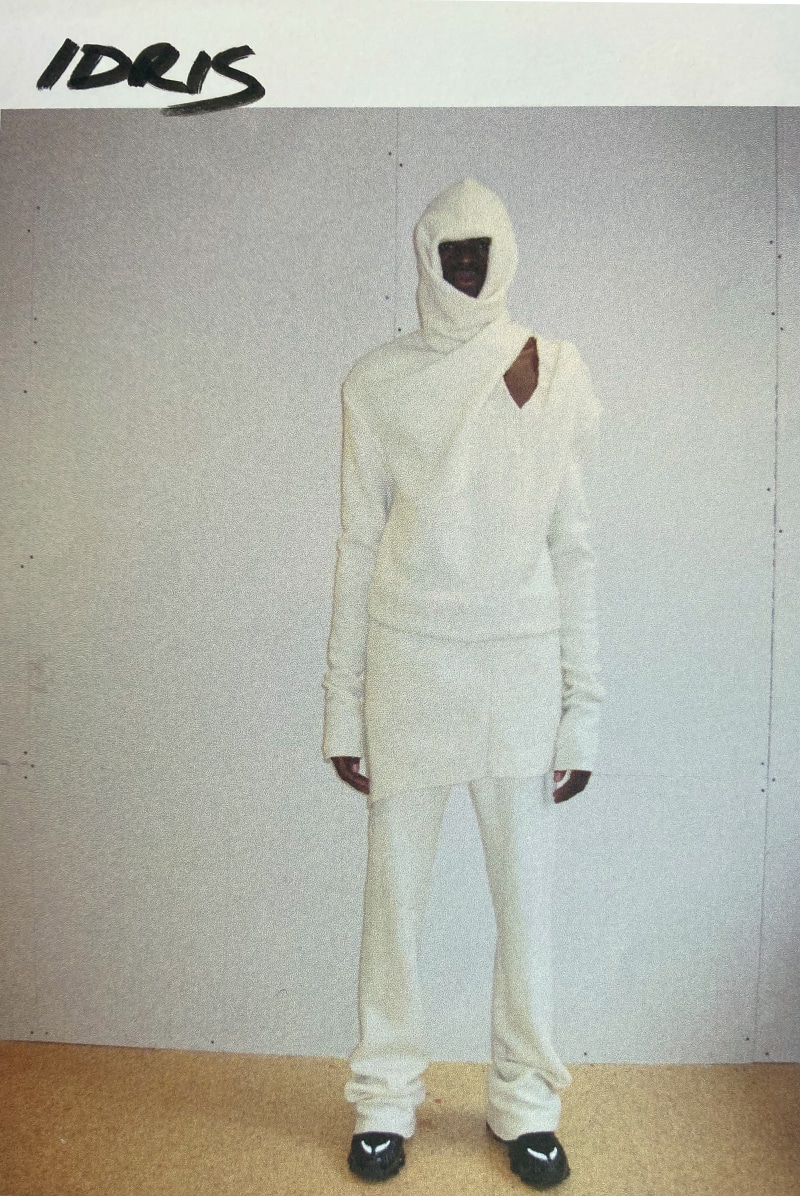
How would you describe Nuba’s persona, who’s he? What does he feel wearing Nuba?
Jebi: We like to think of the Nuba person as someone who has arrived at a sense of confidence and preparedness with their own nuanced identity. Often when growing up and living in environments foreign to our home culture, or even coming from mixed heritage, there are pressures we all face from different communities we interact with. Nuba is essentially a compromise of those internal battles between cultures, for acceptance and validation, to form our own nuance of who we are. And through clothing, we express that in tailoring that represents that confidence and preparedness to exist in that gap between cultures that, when growing up, many of us are looking for.
What can we expect from you in the future?
Cameron: Through our collections, collaborations, and storytelling, we hope to foster a community that celebrates diversity, challenges conventions, and encourages individuals to embrace their unique narratives.
